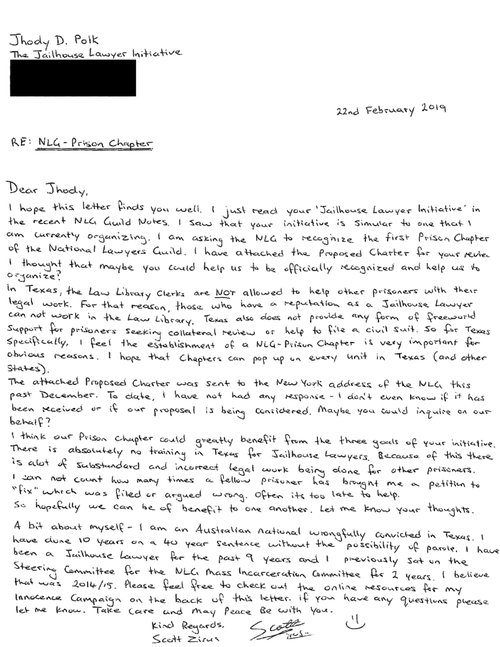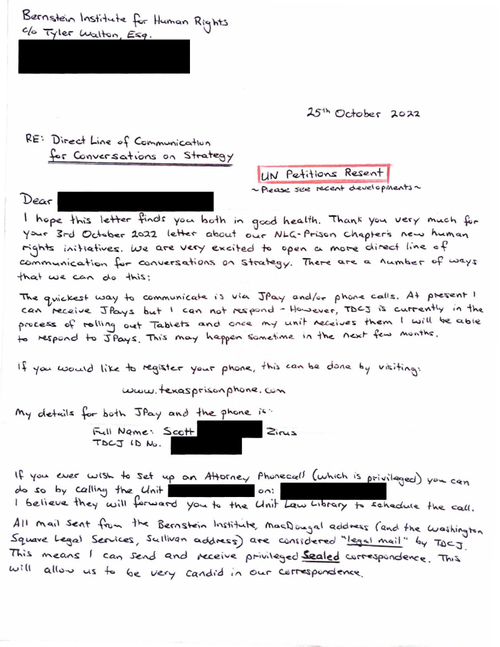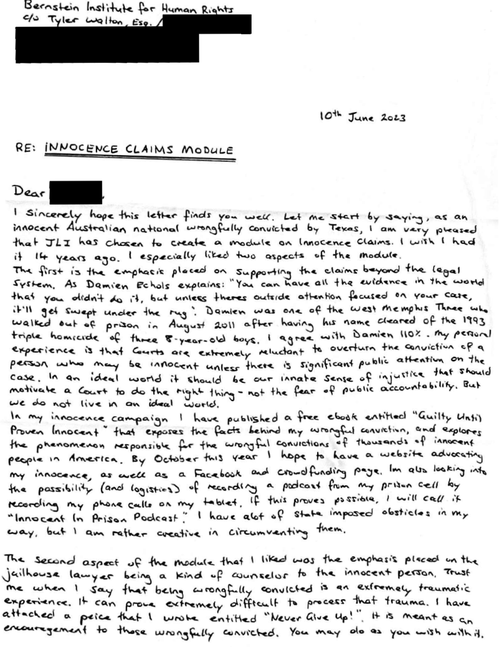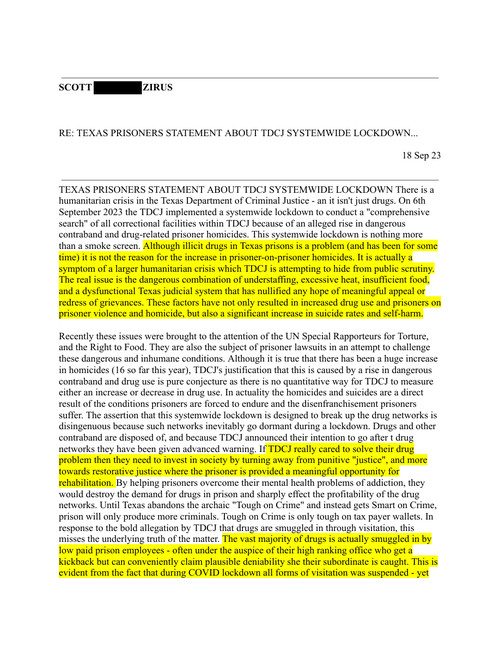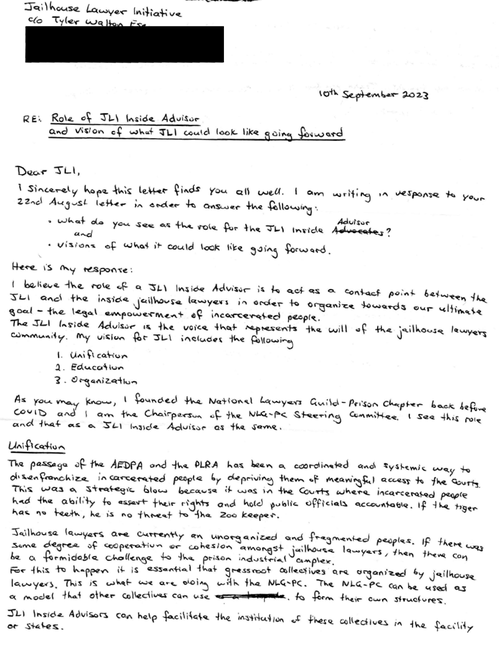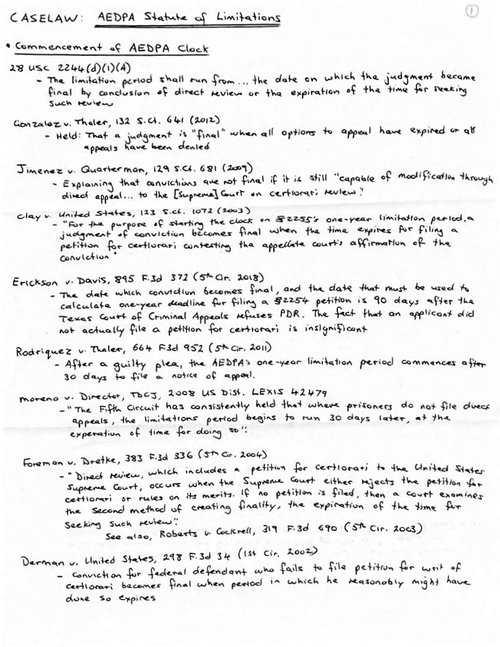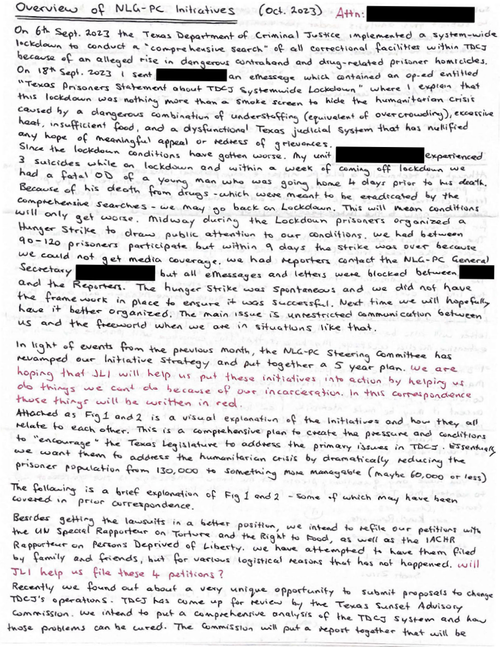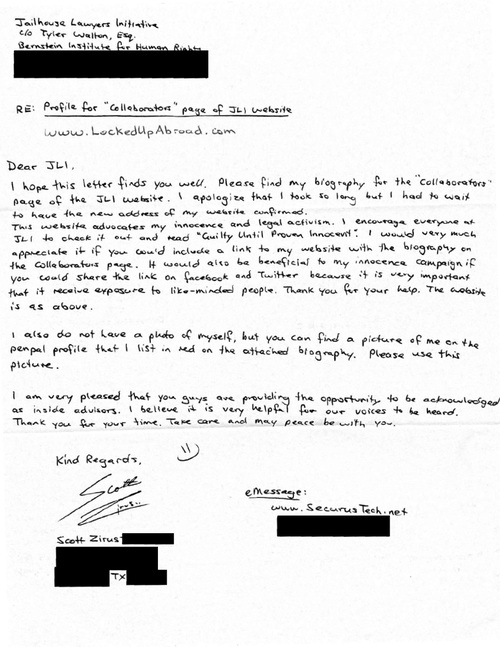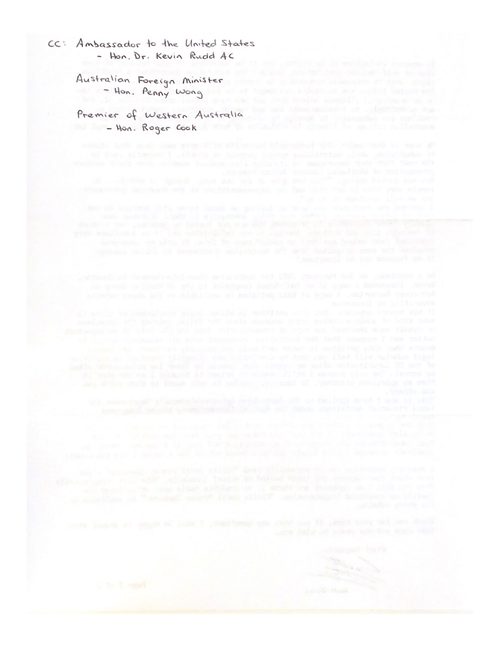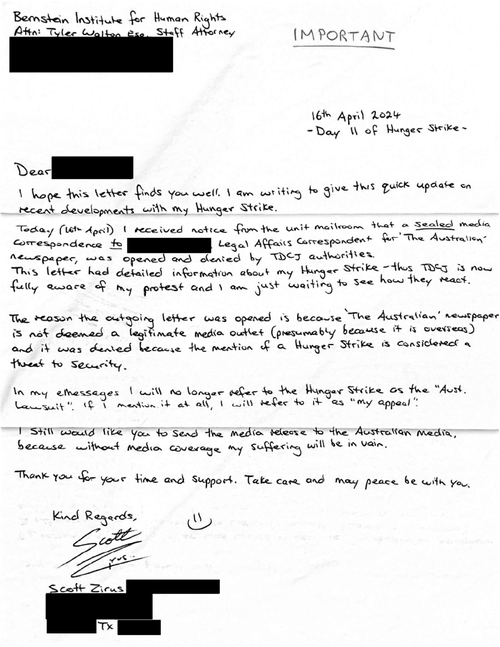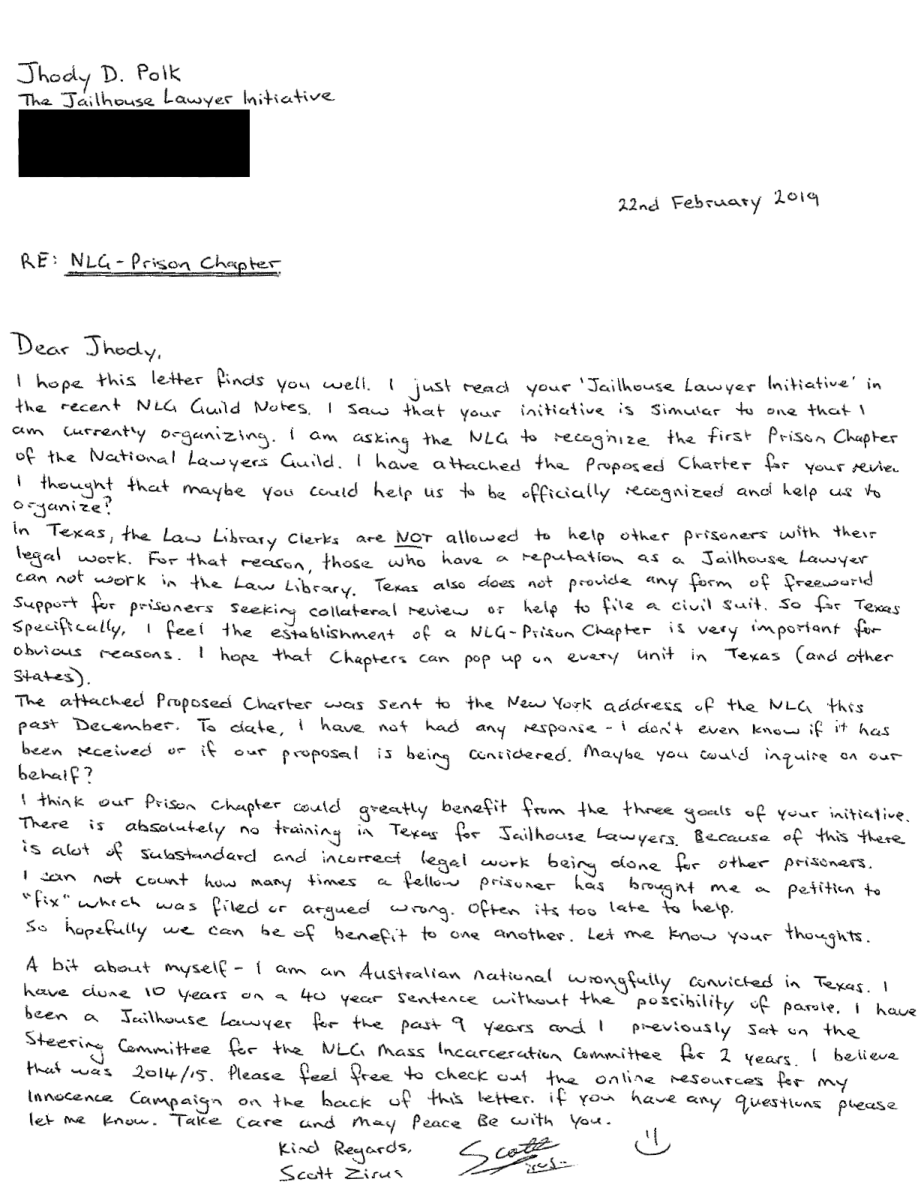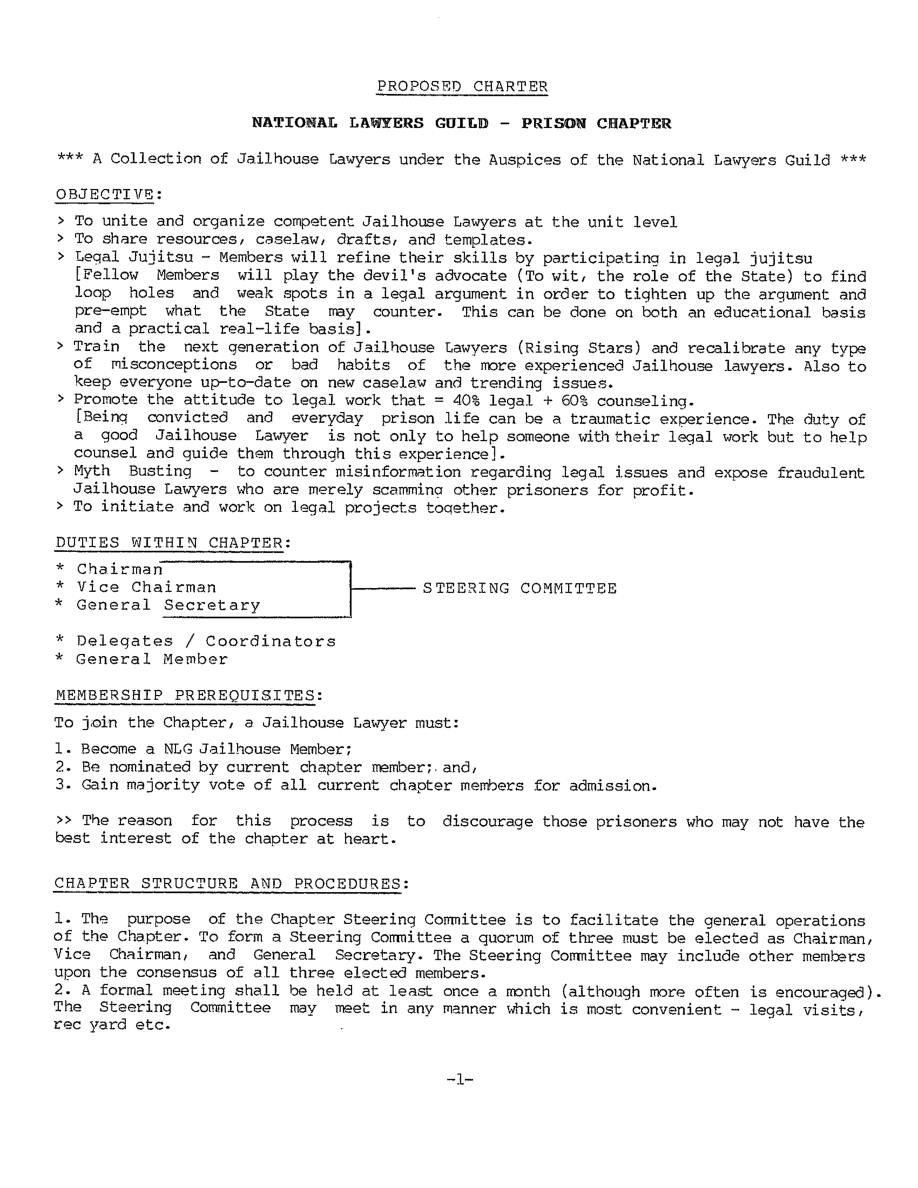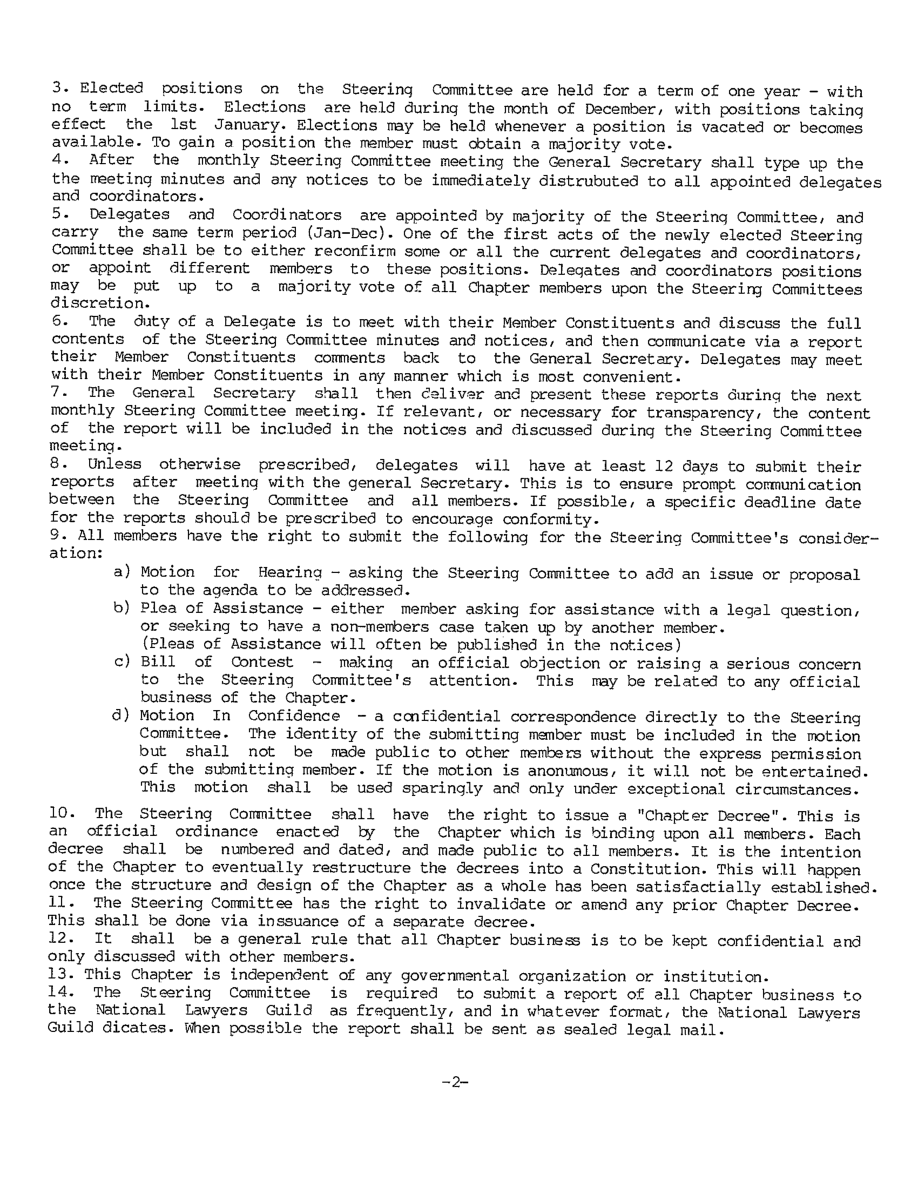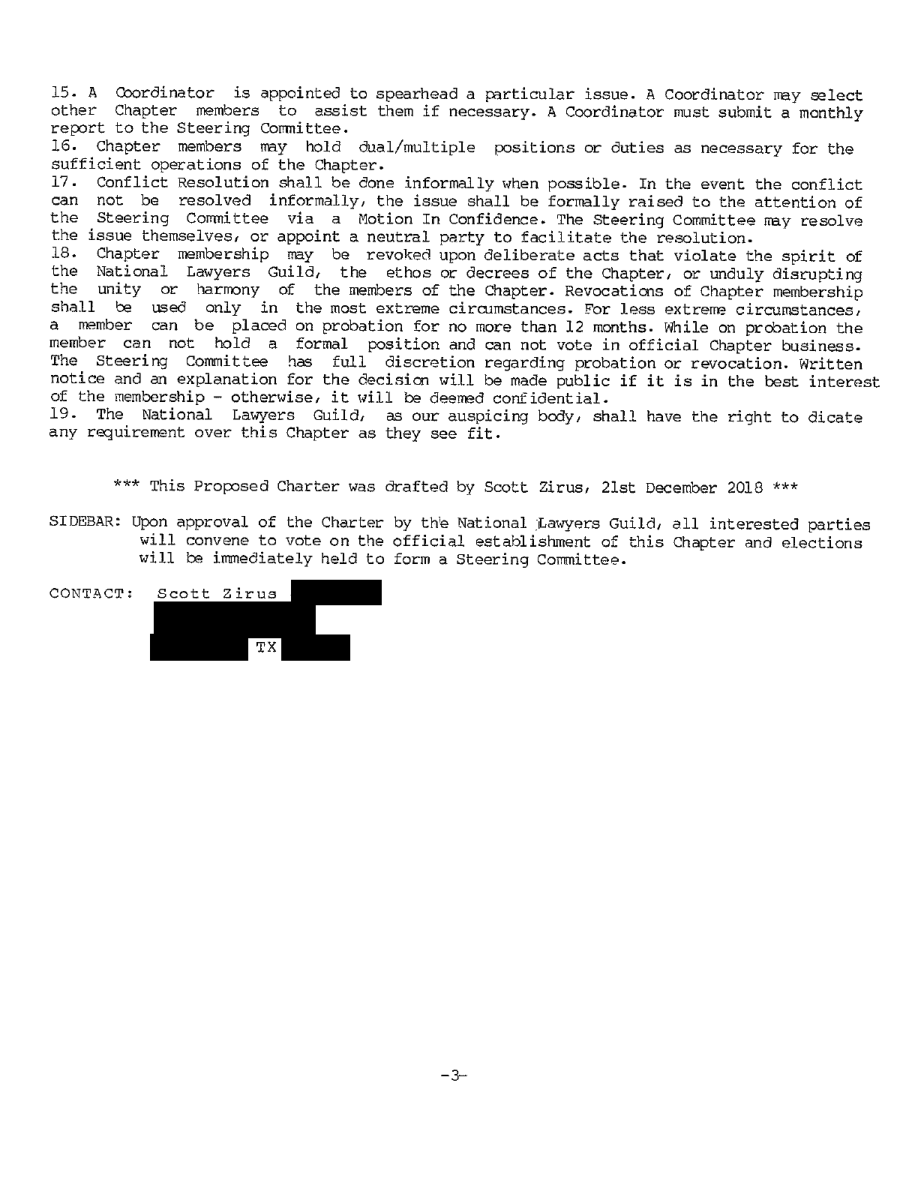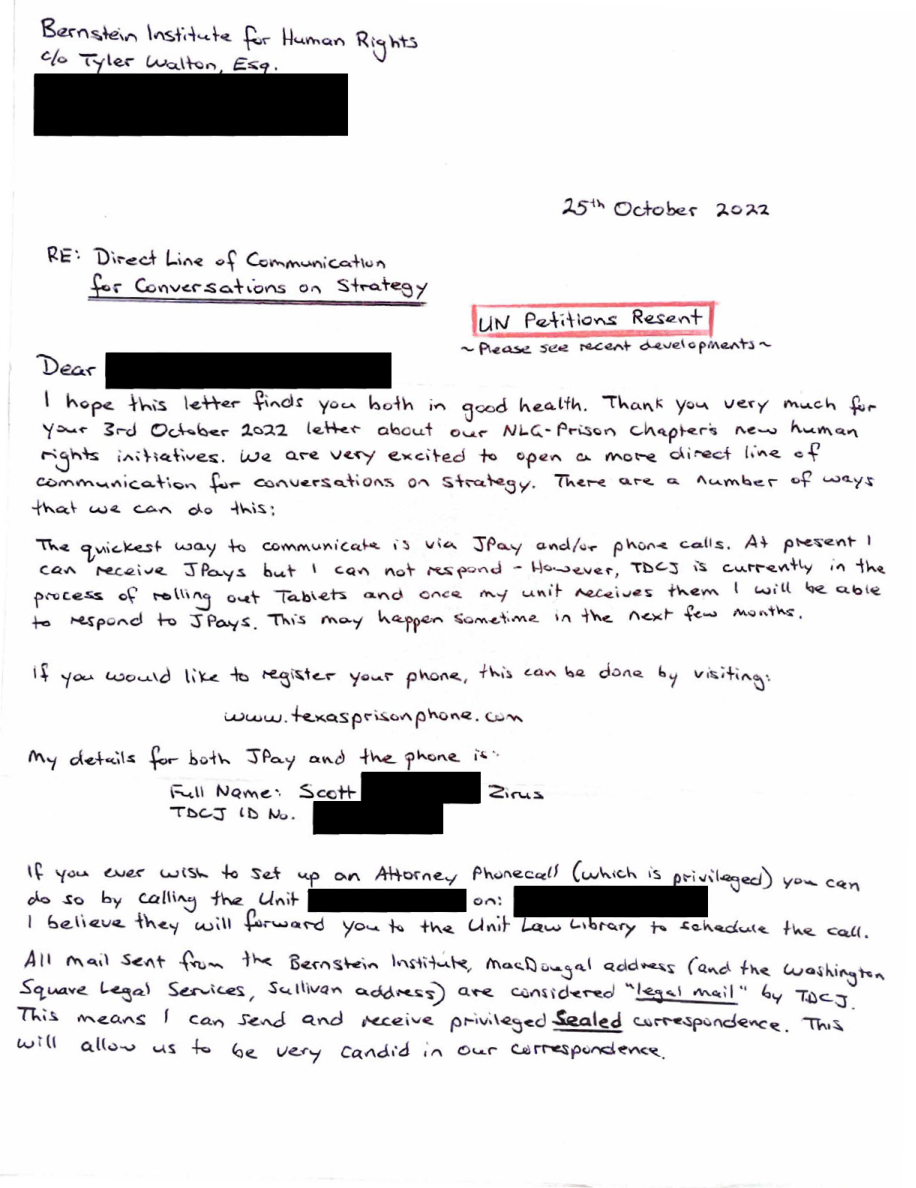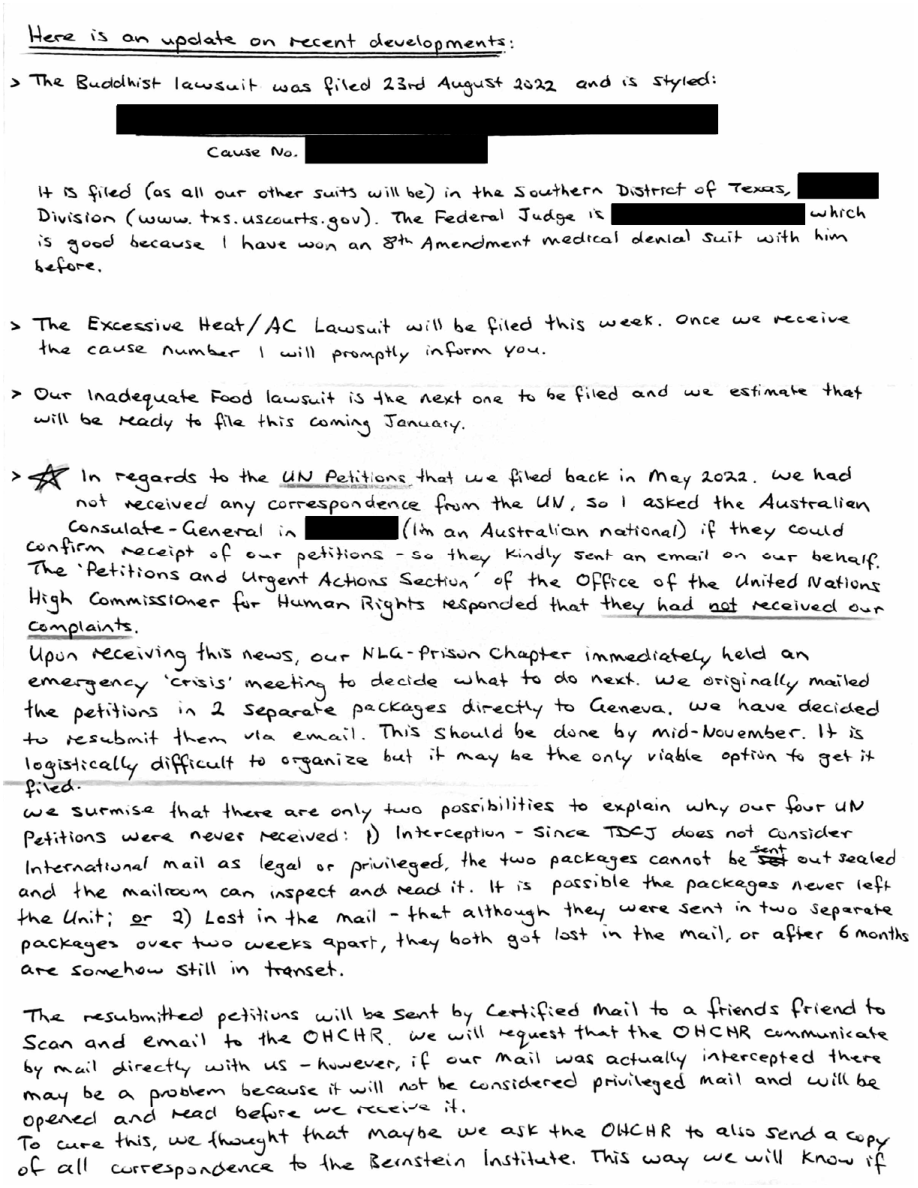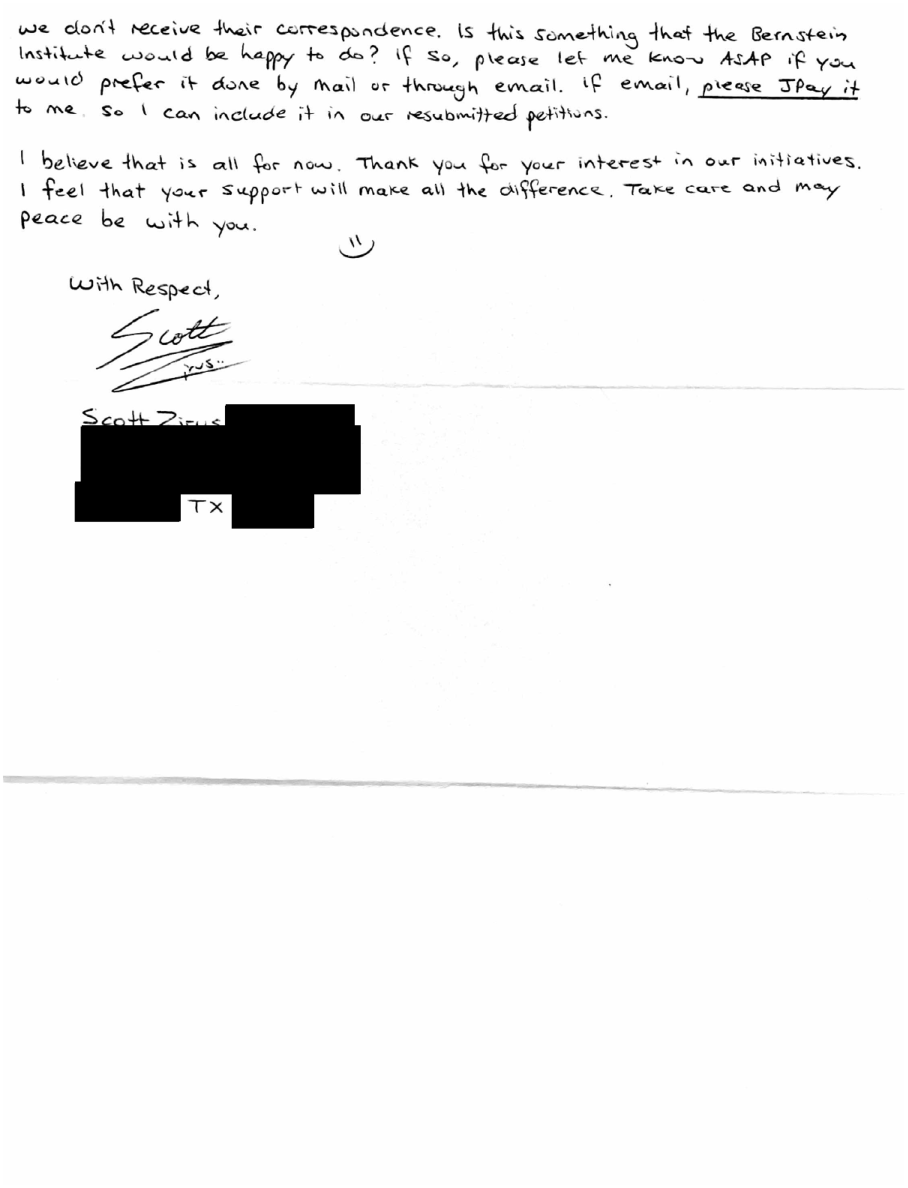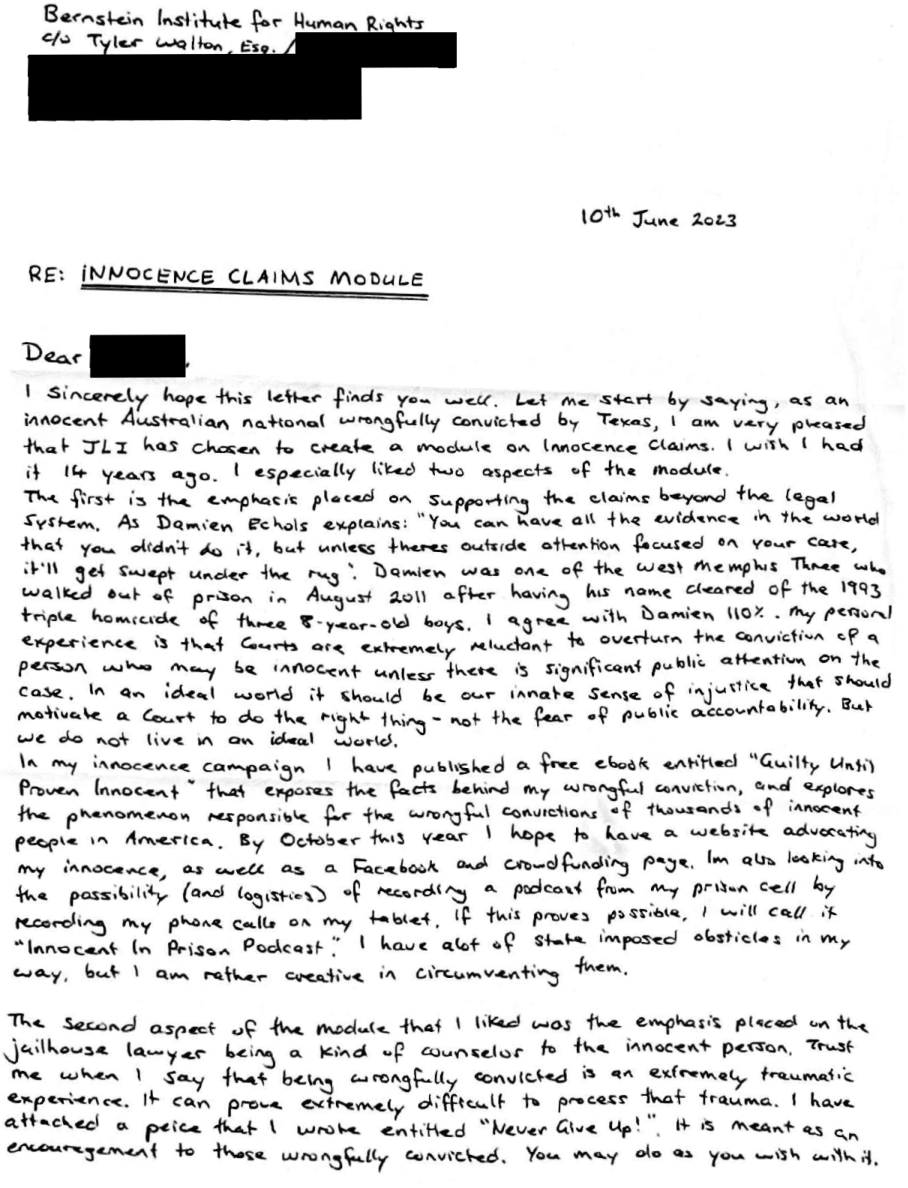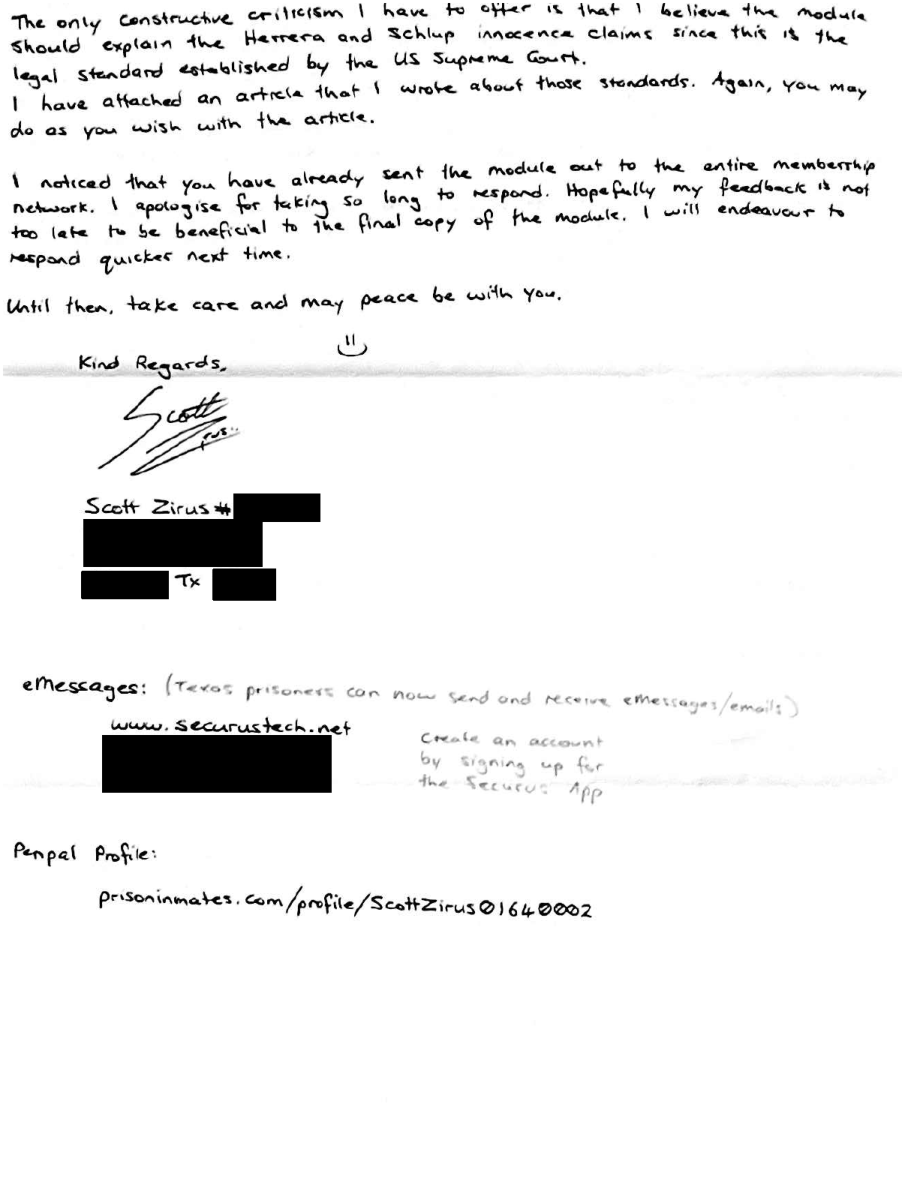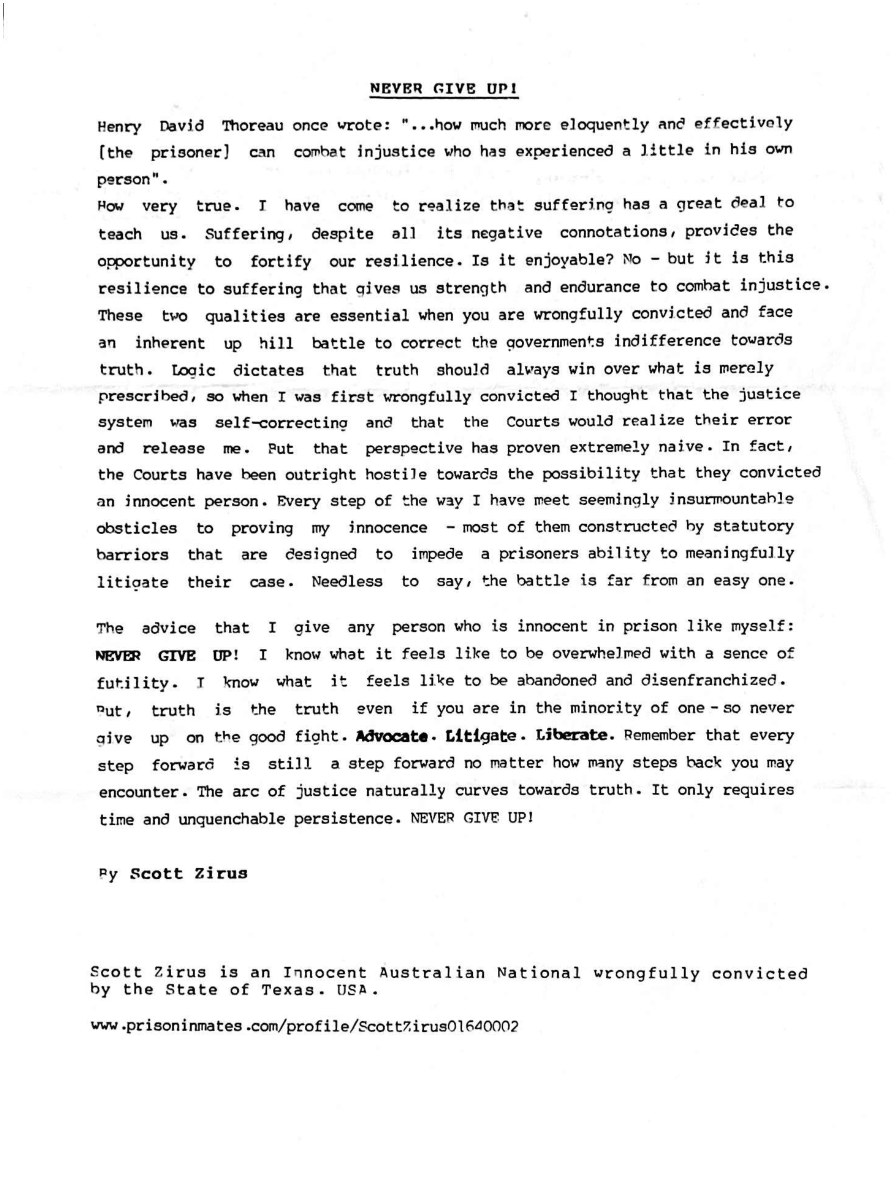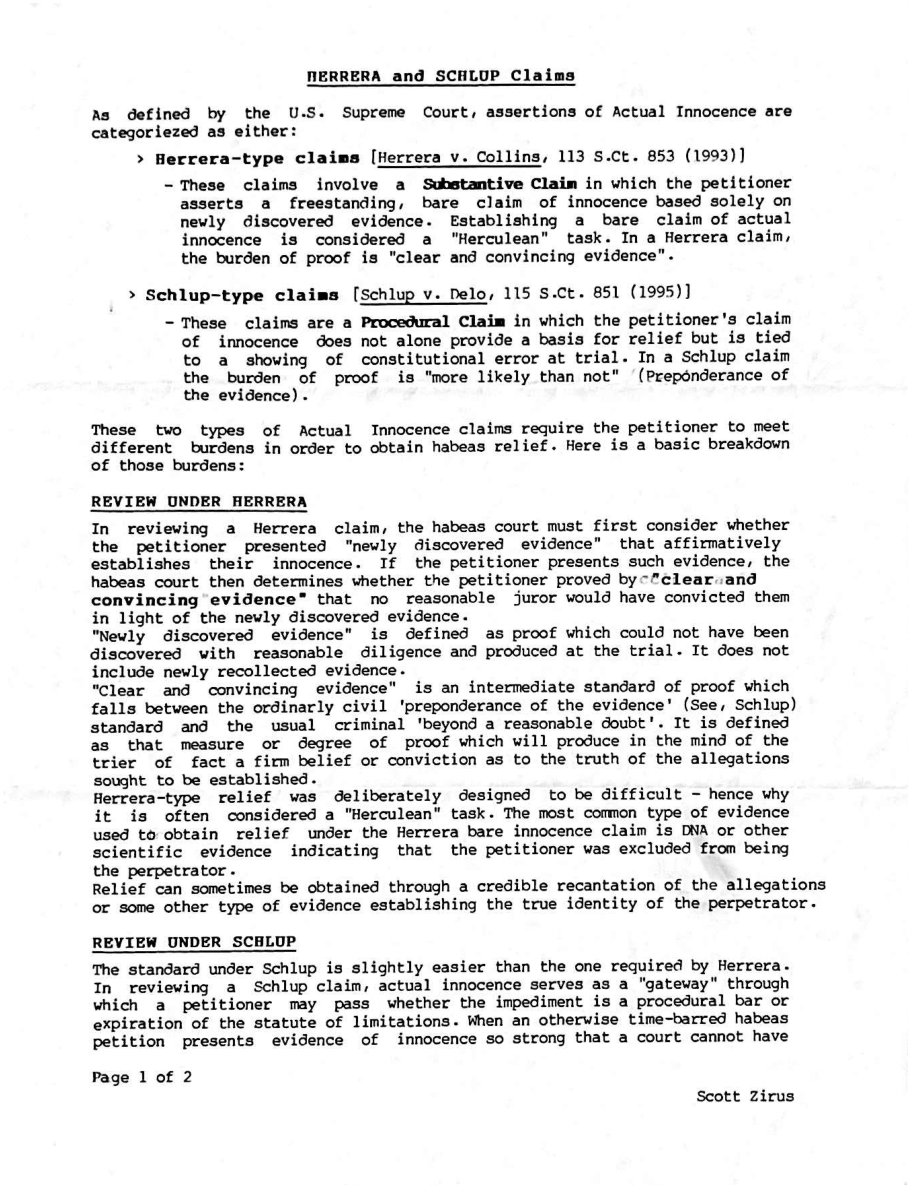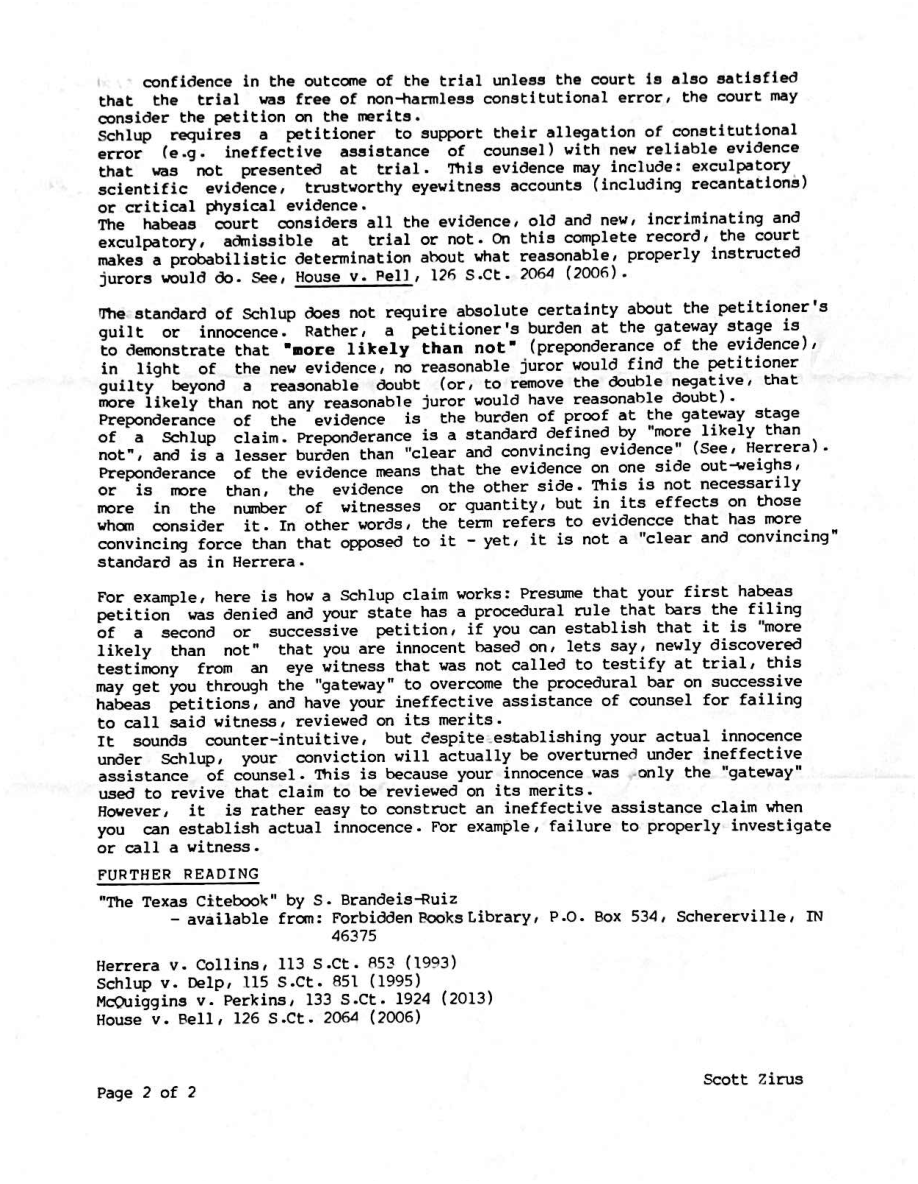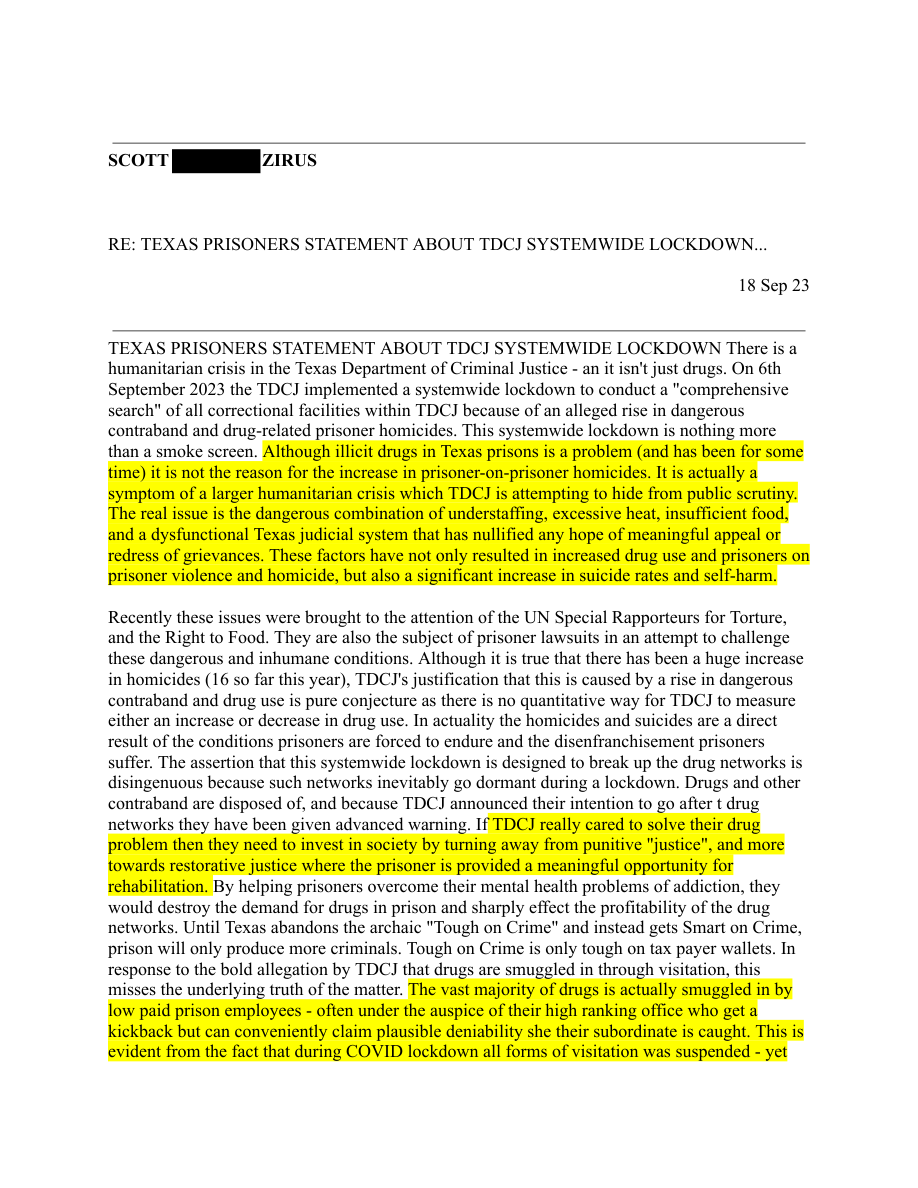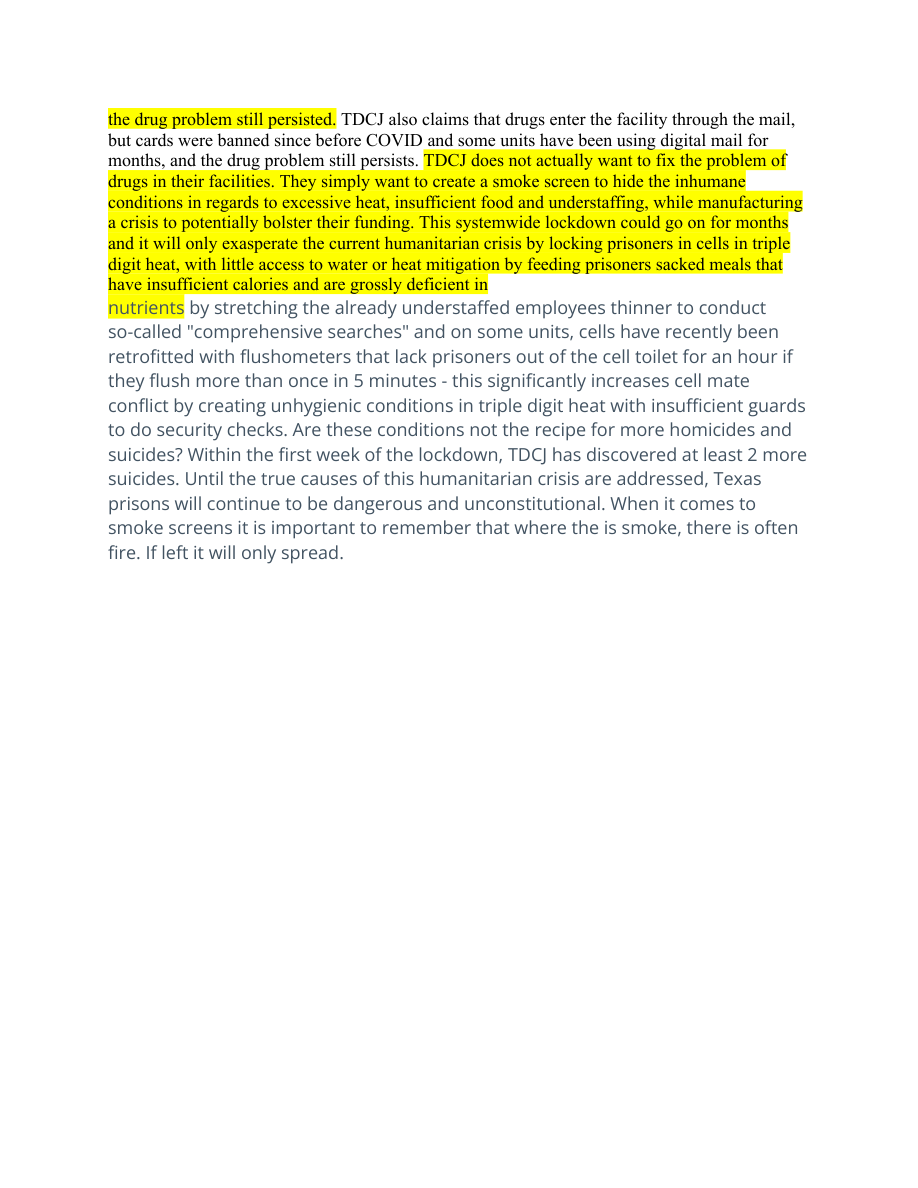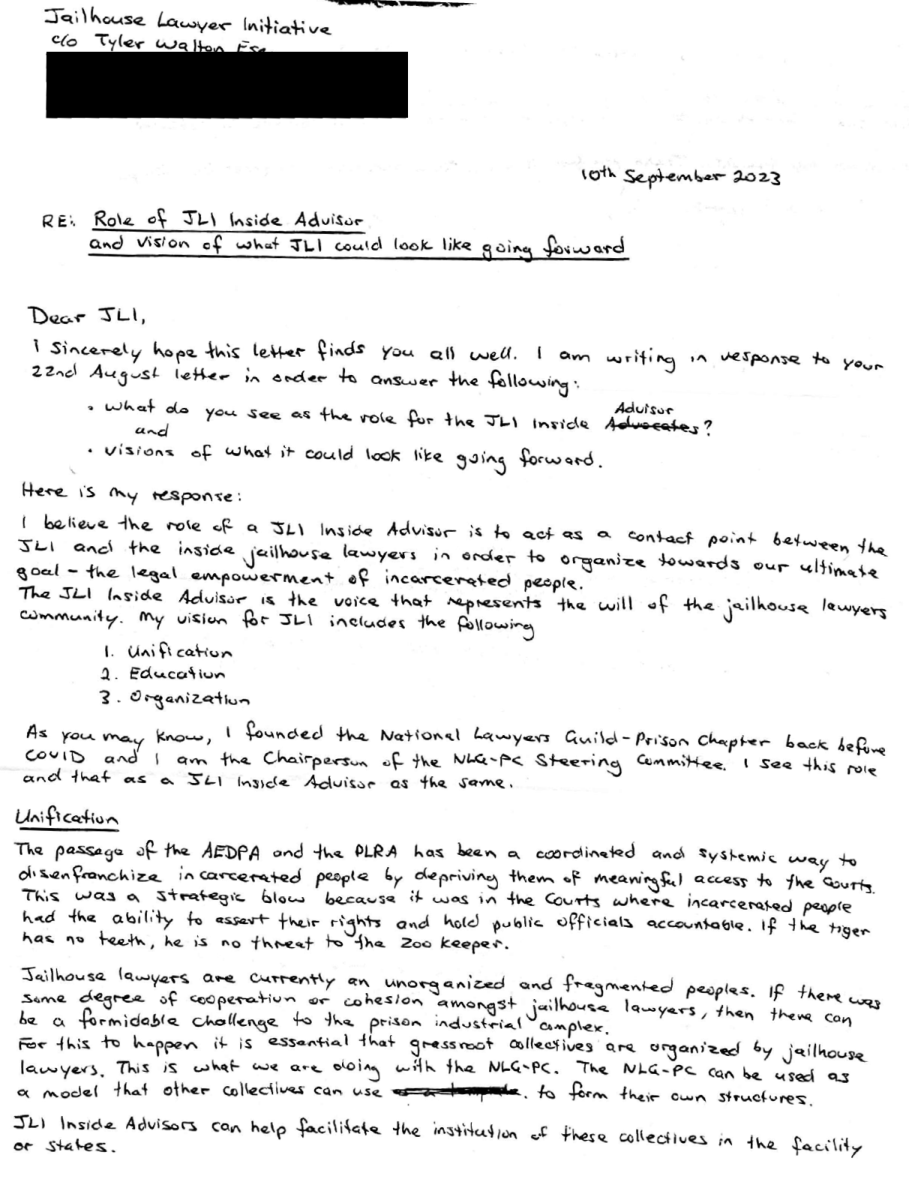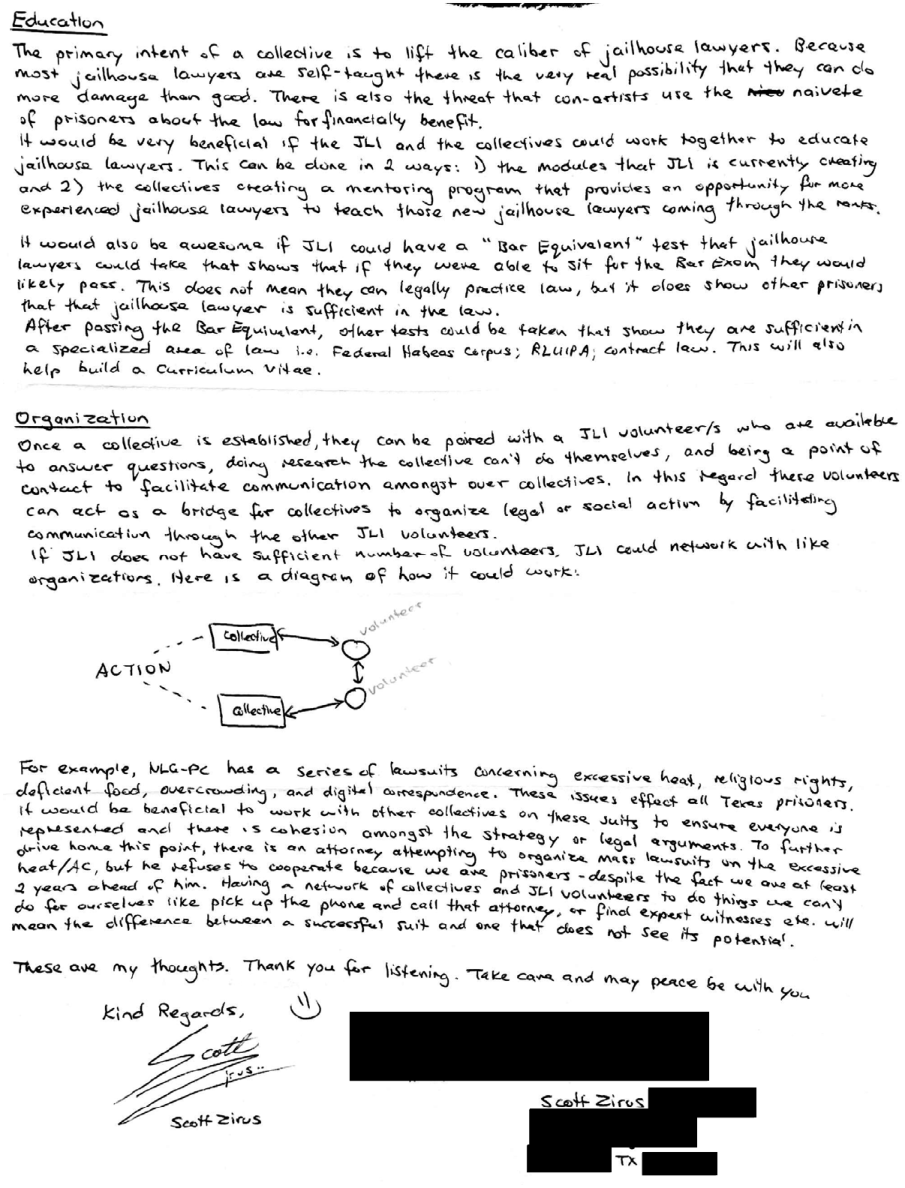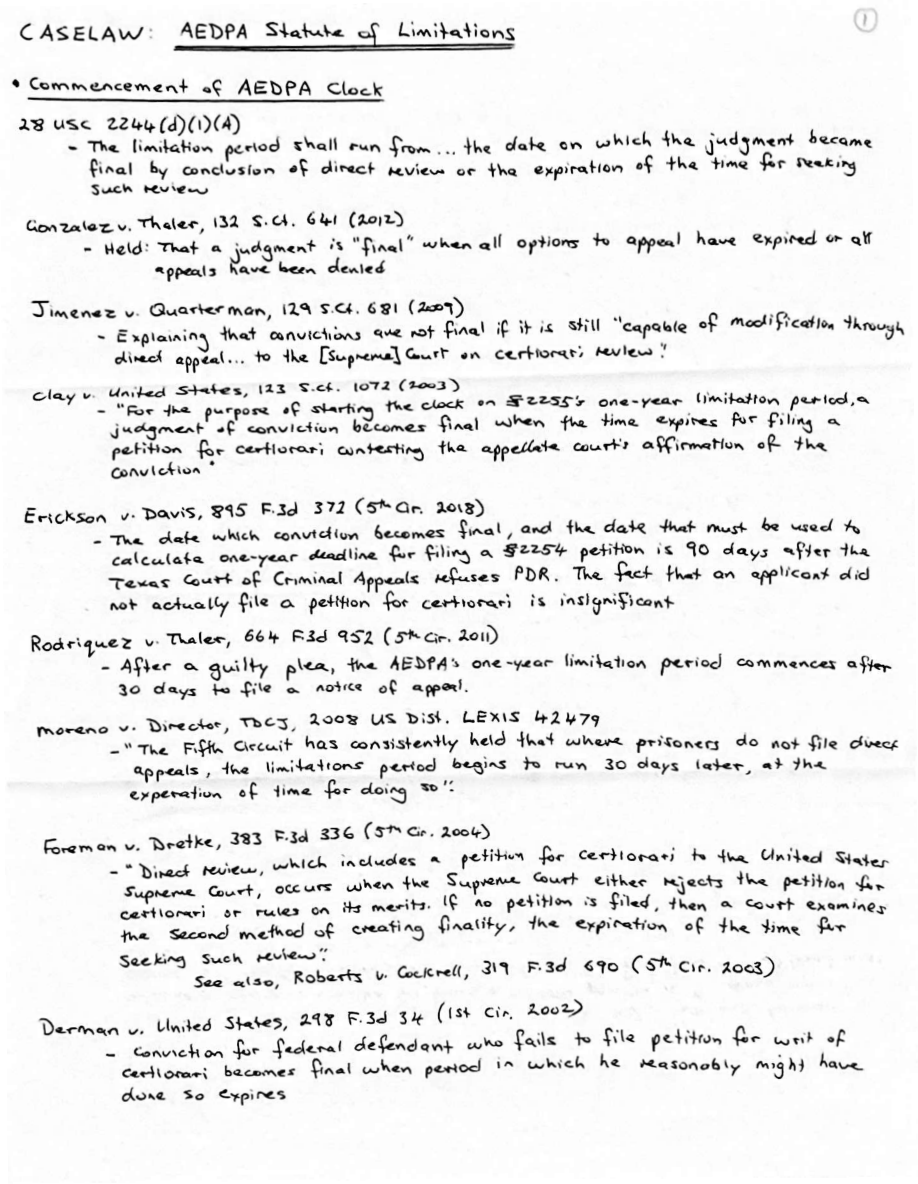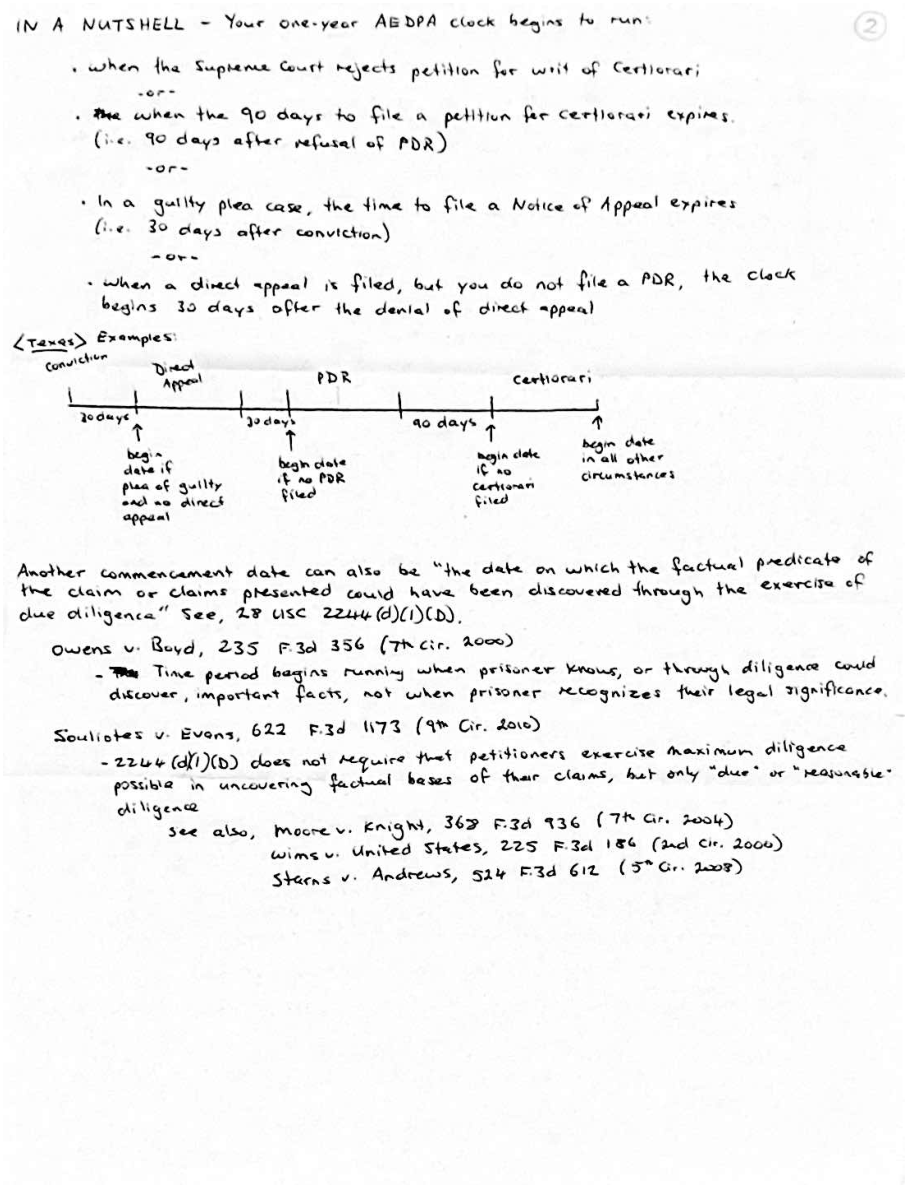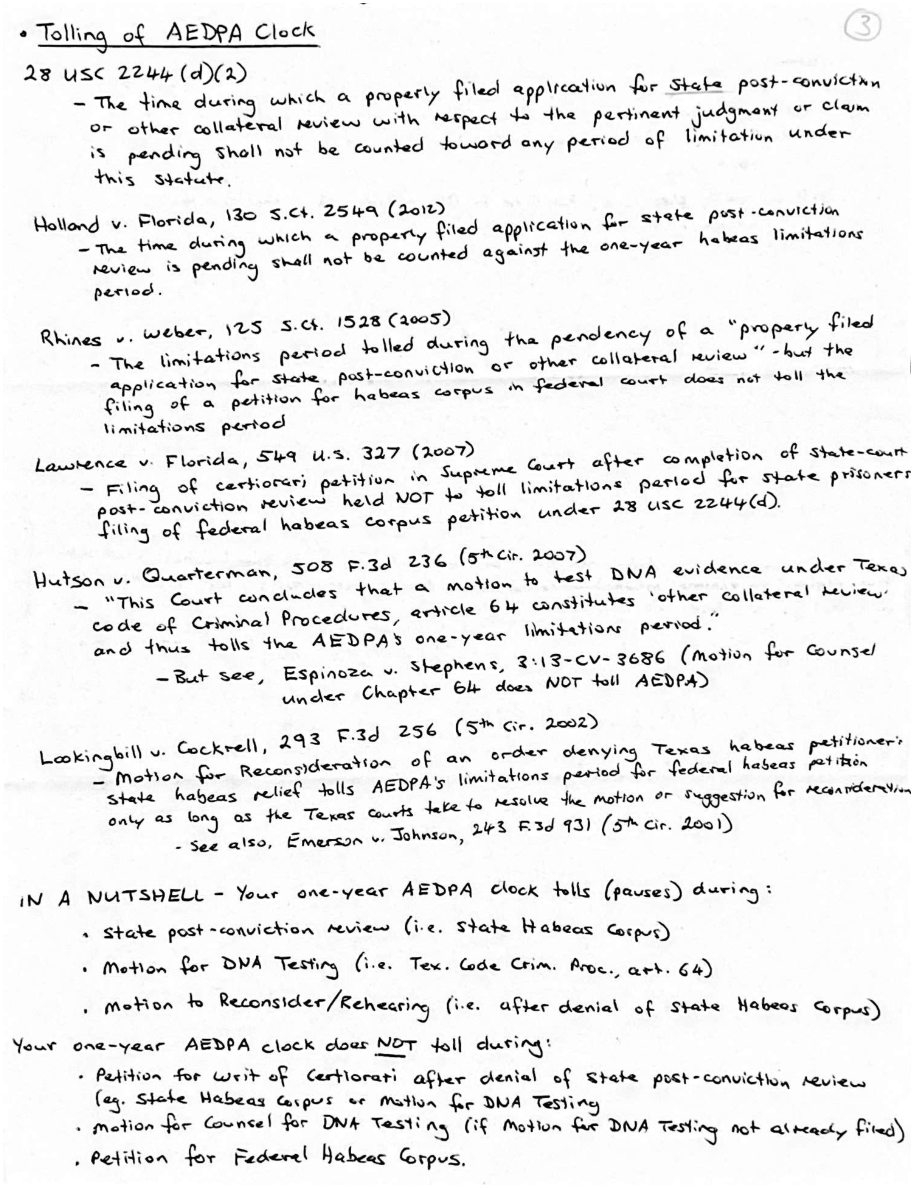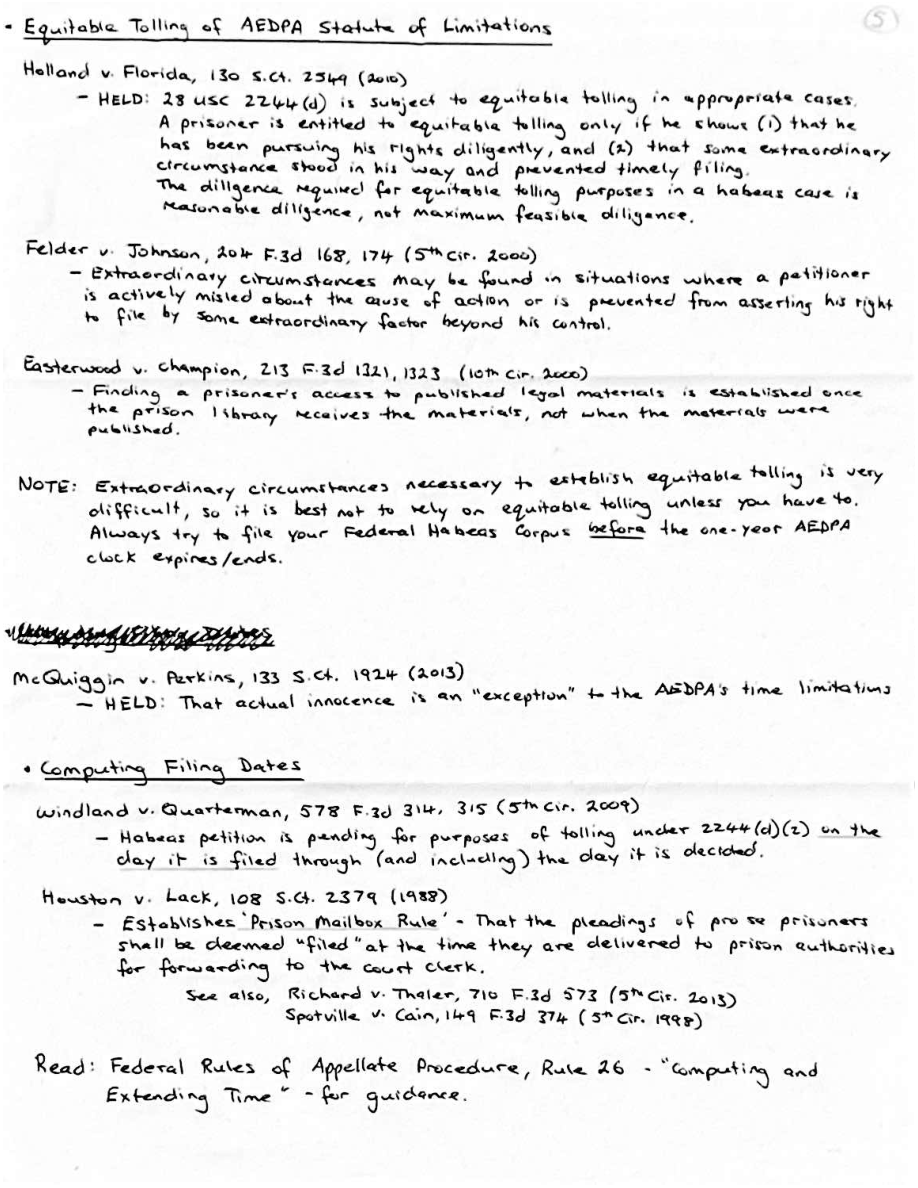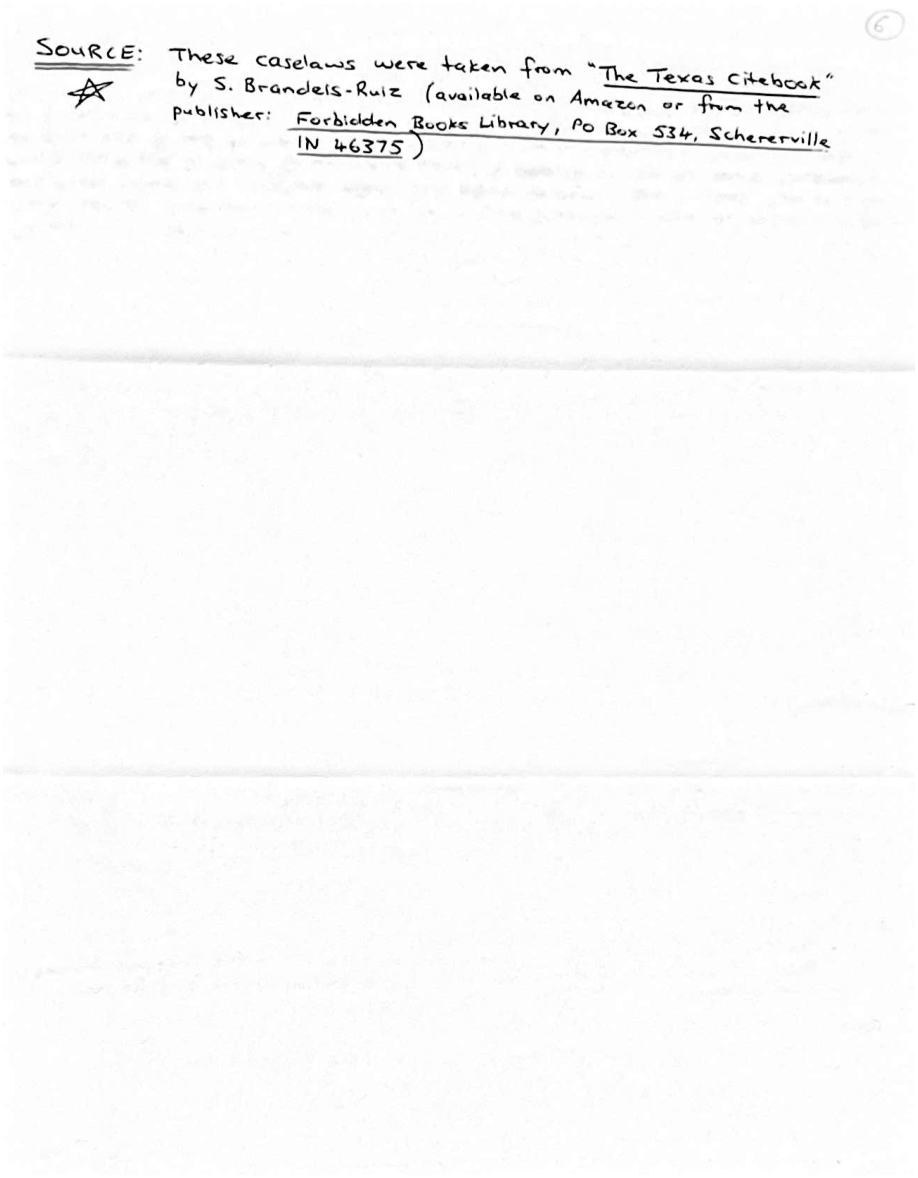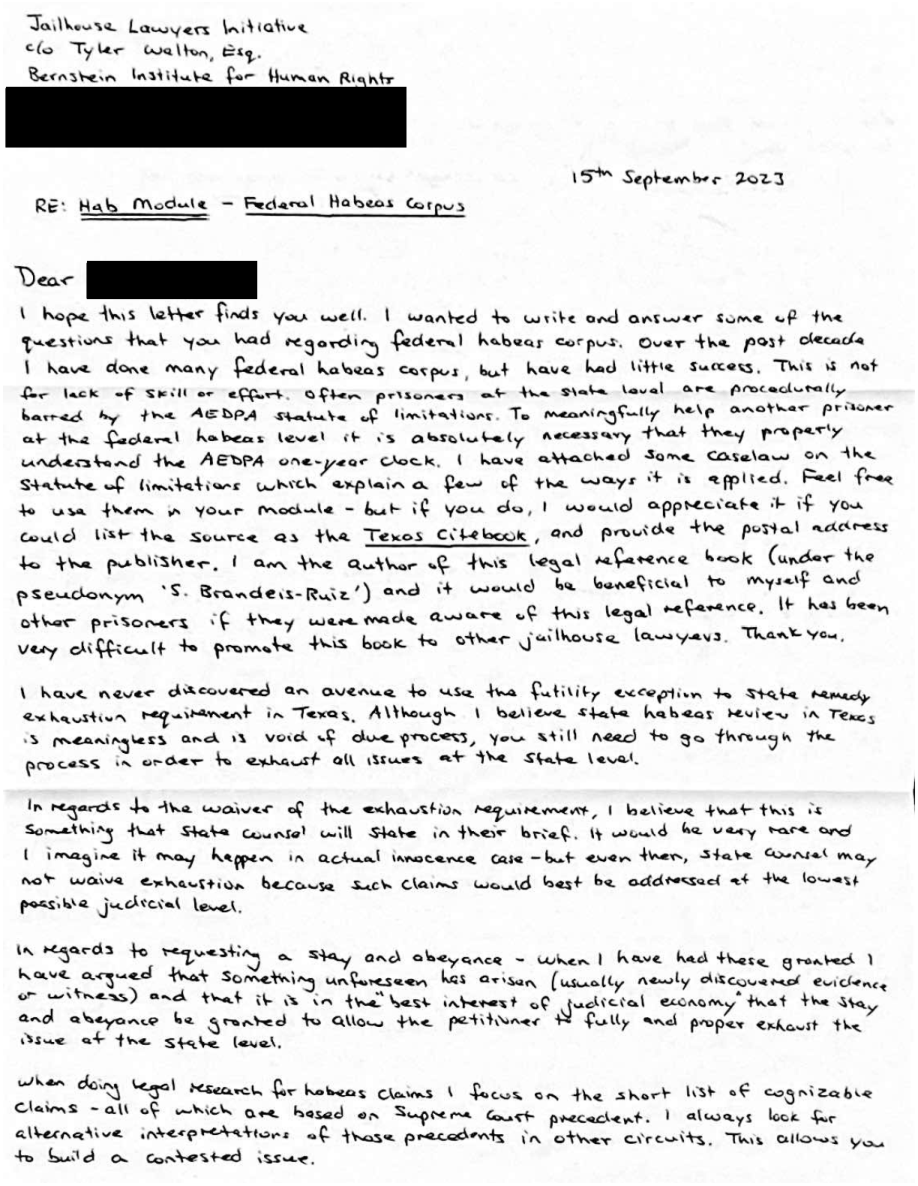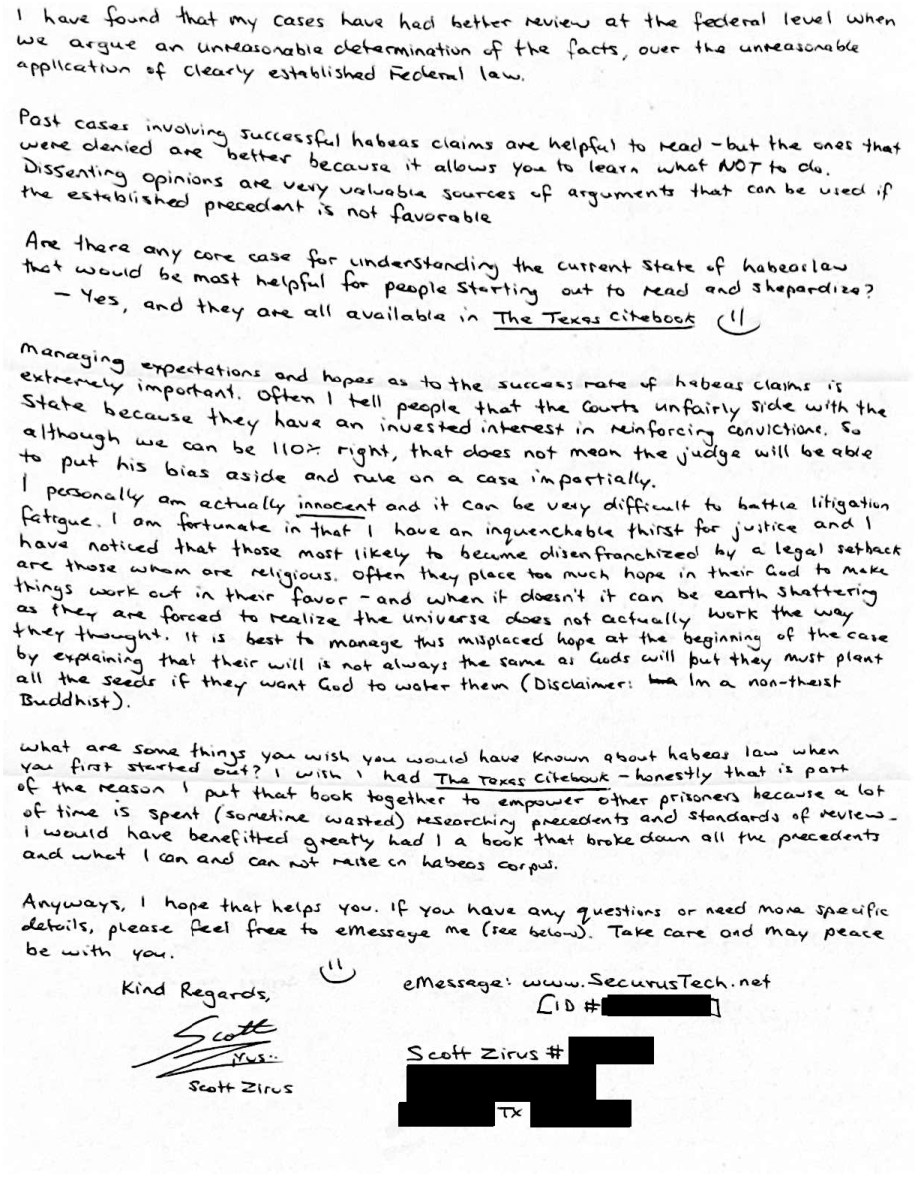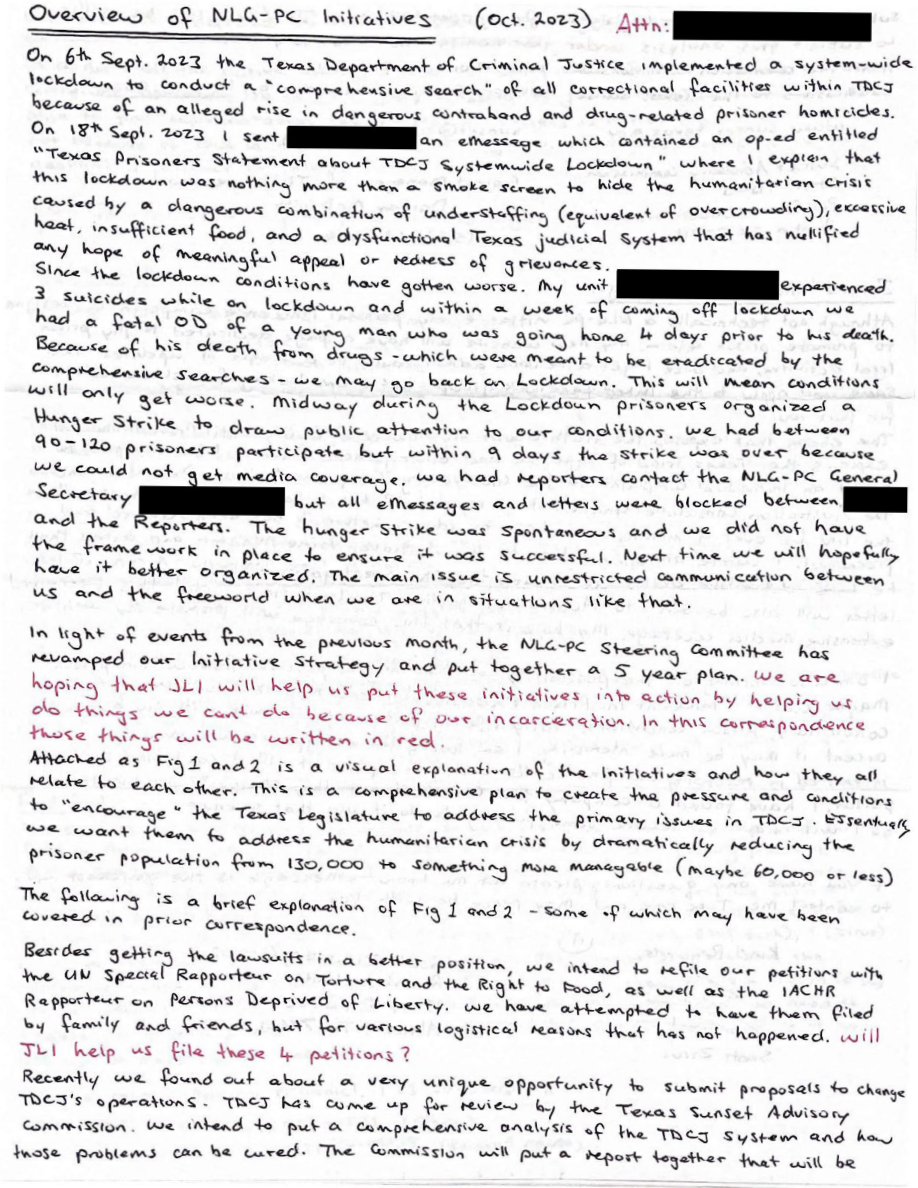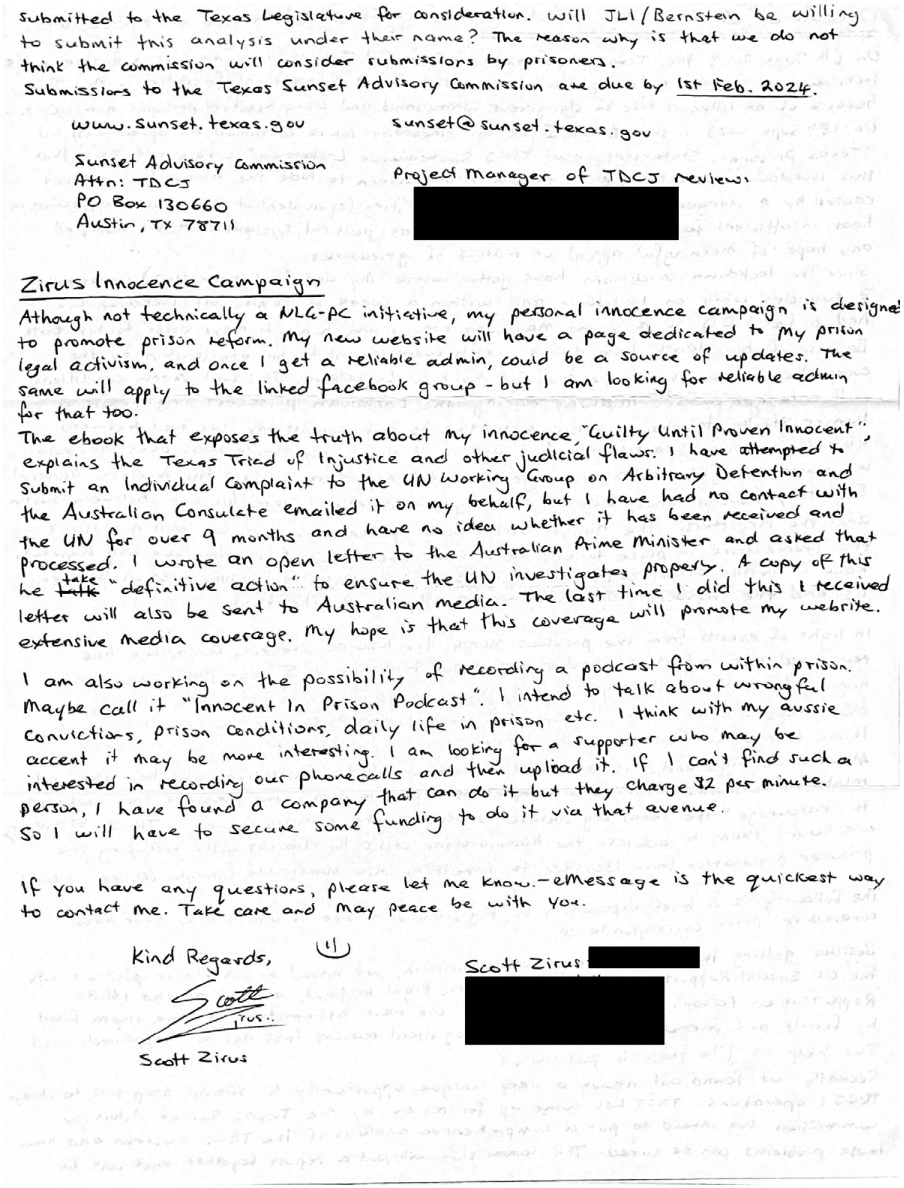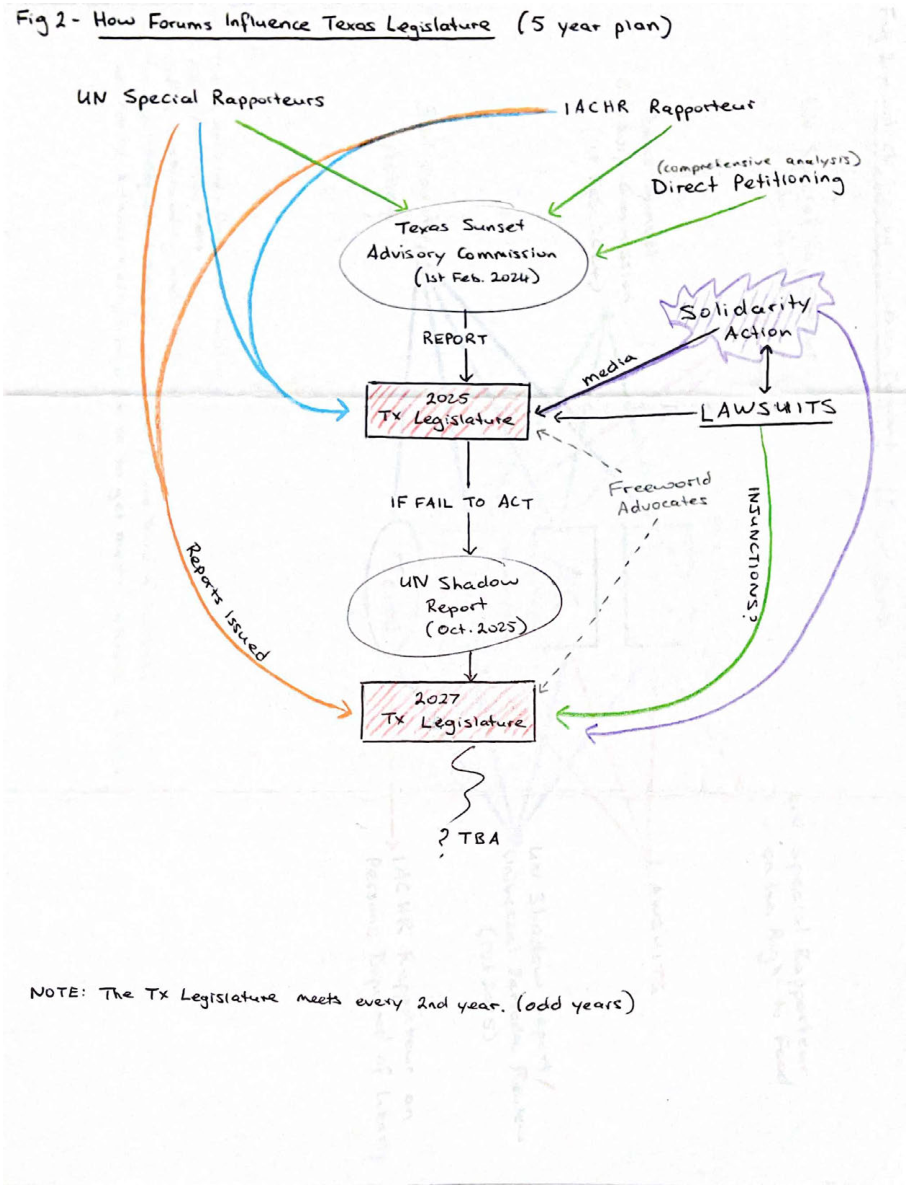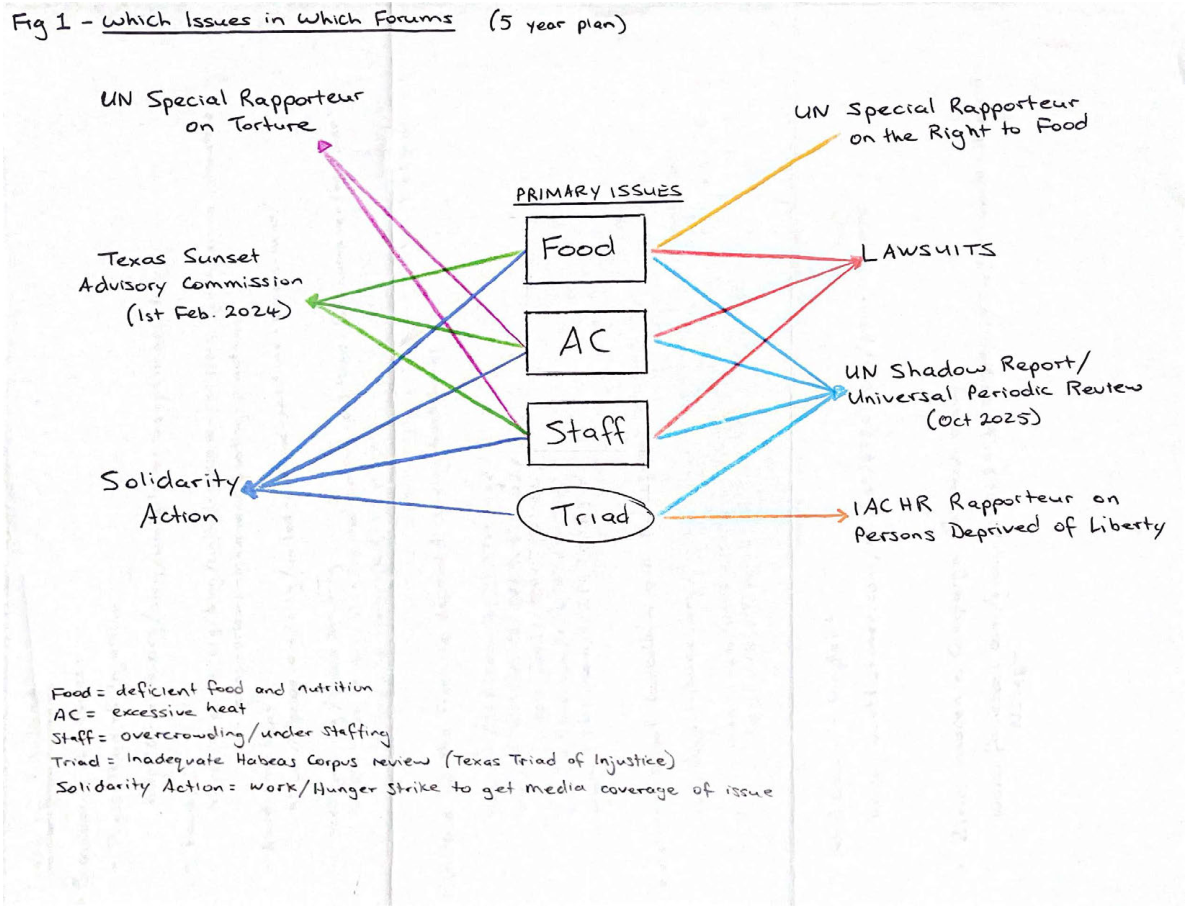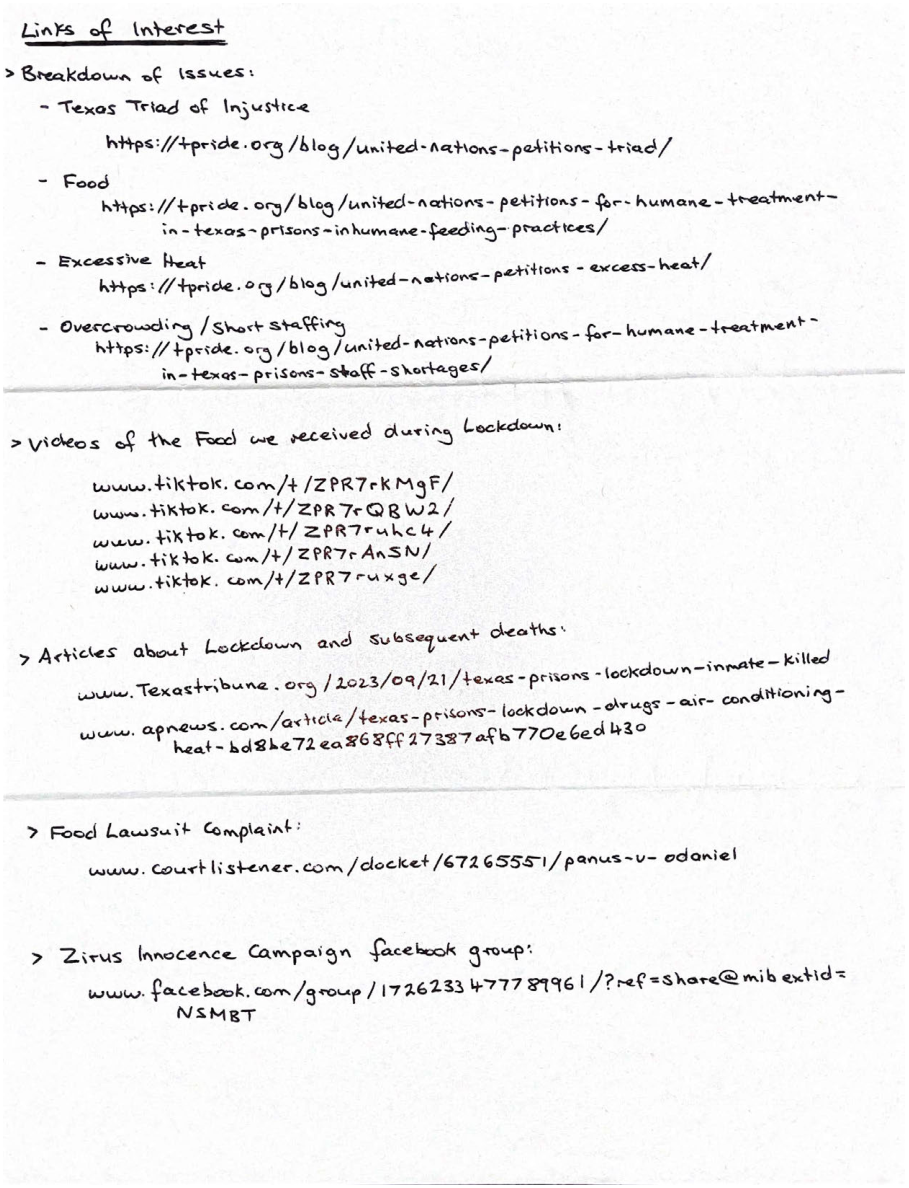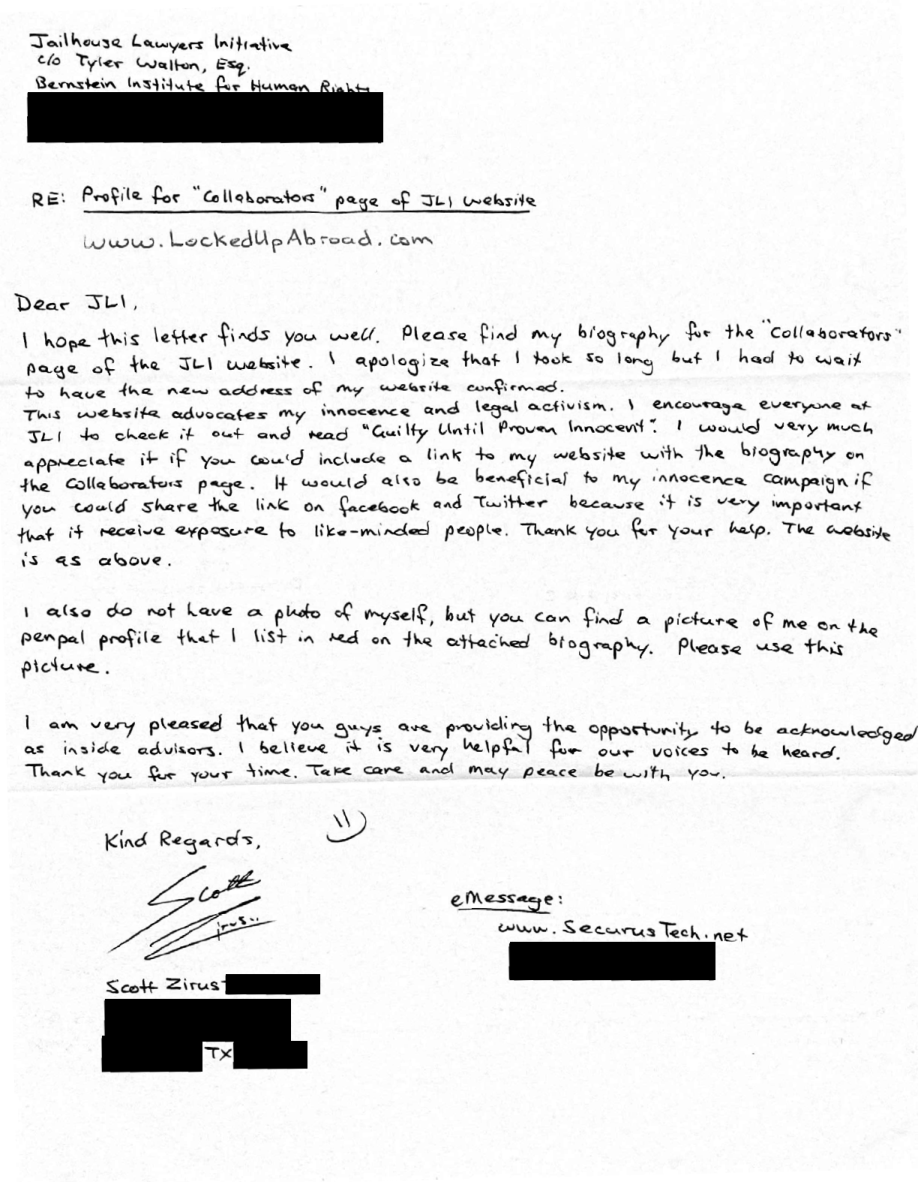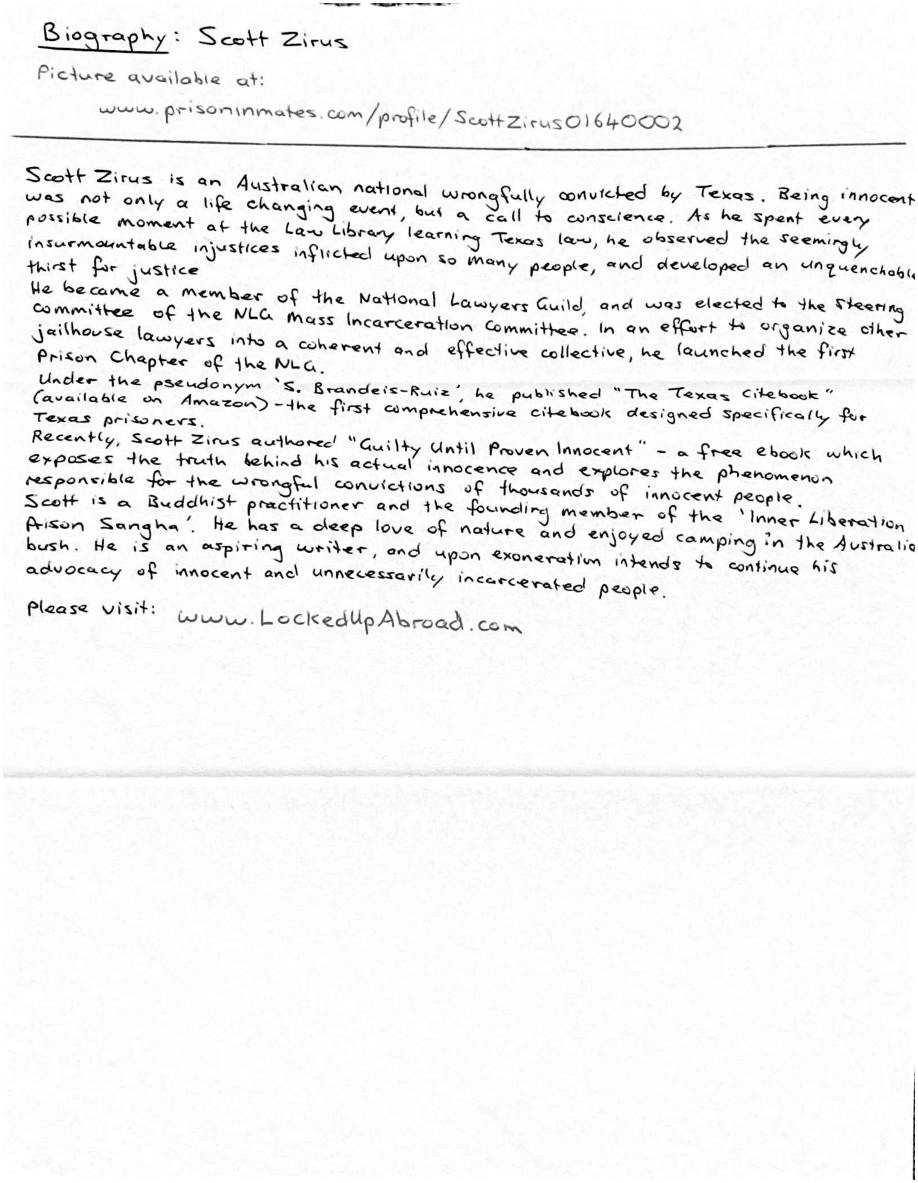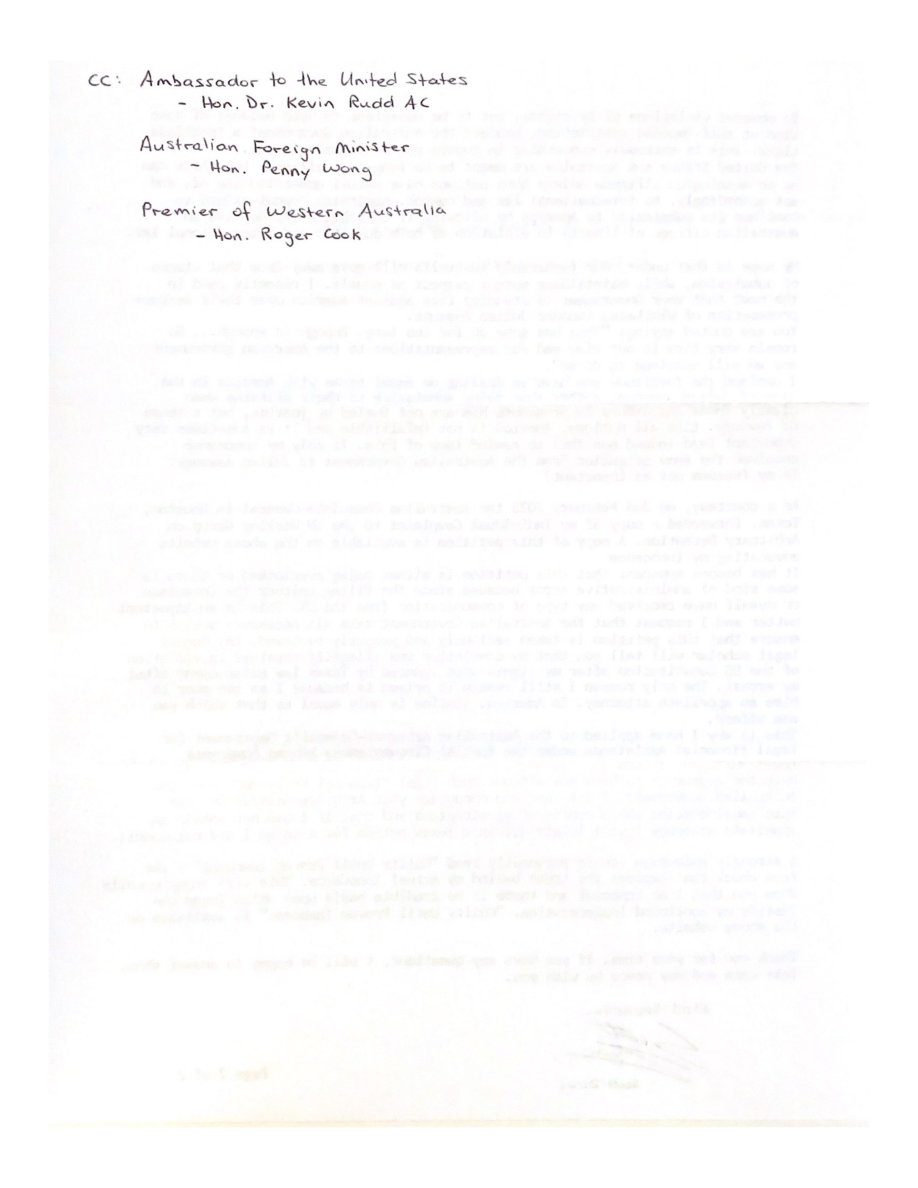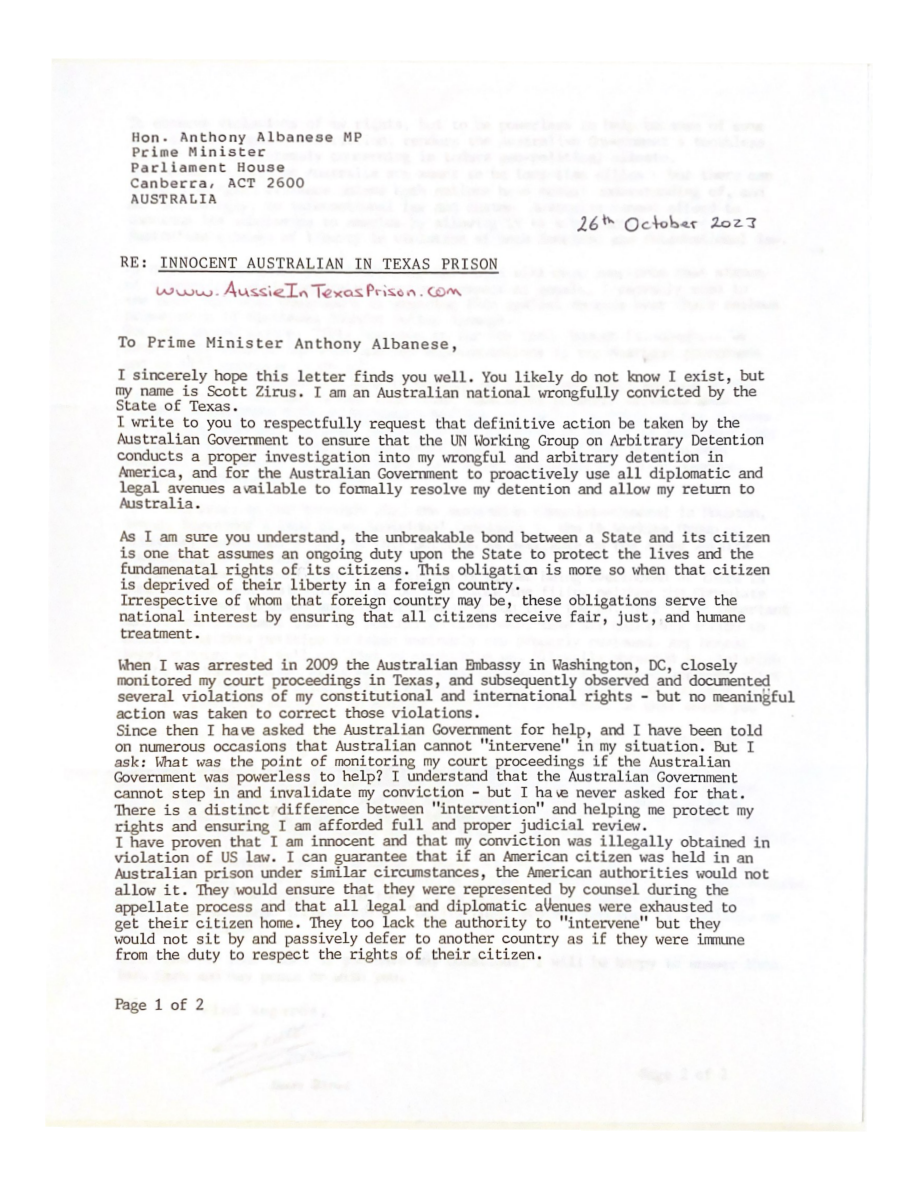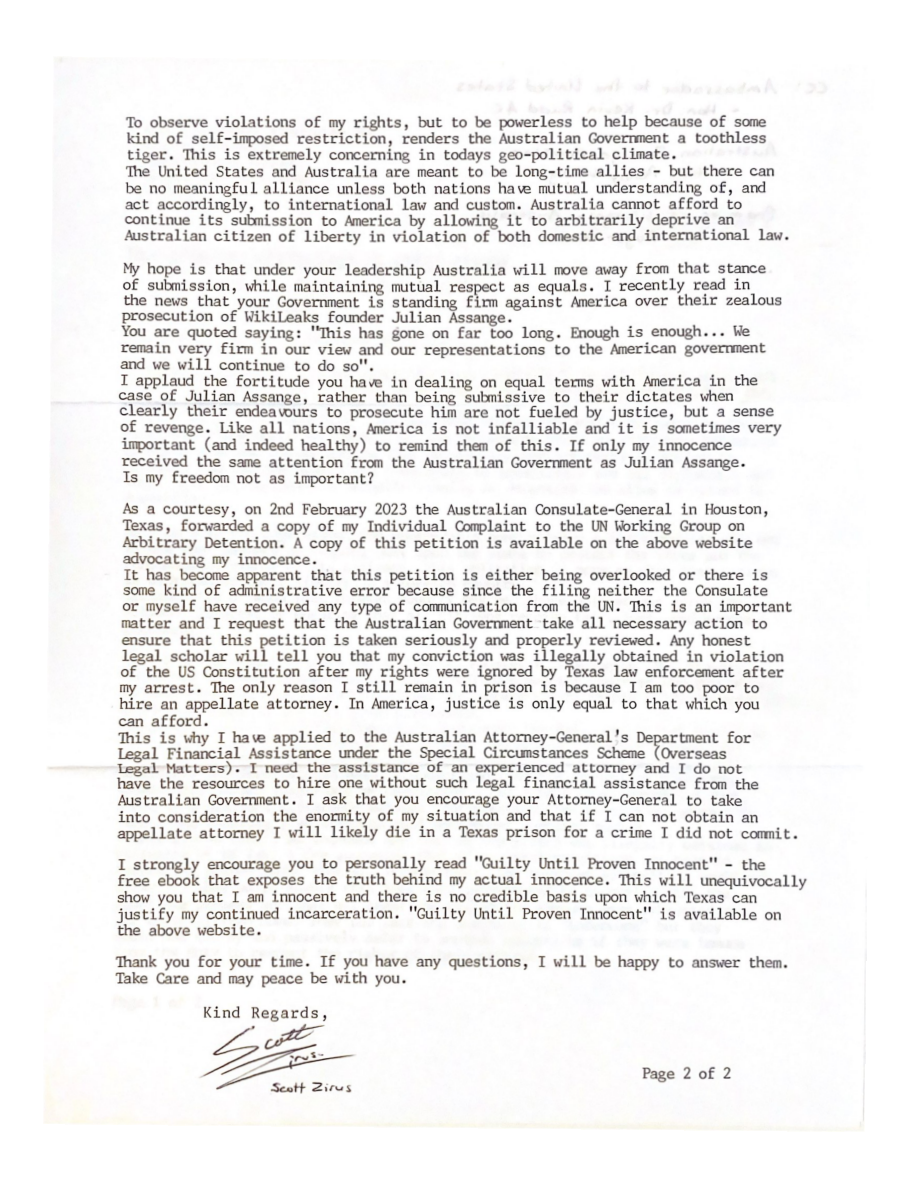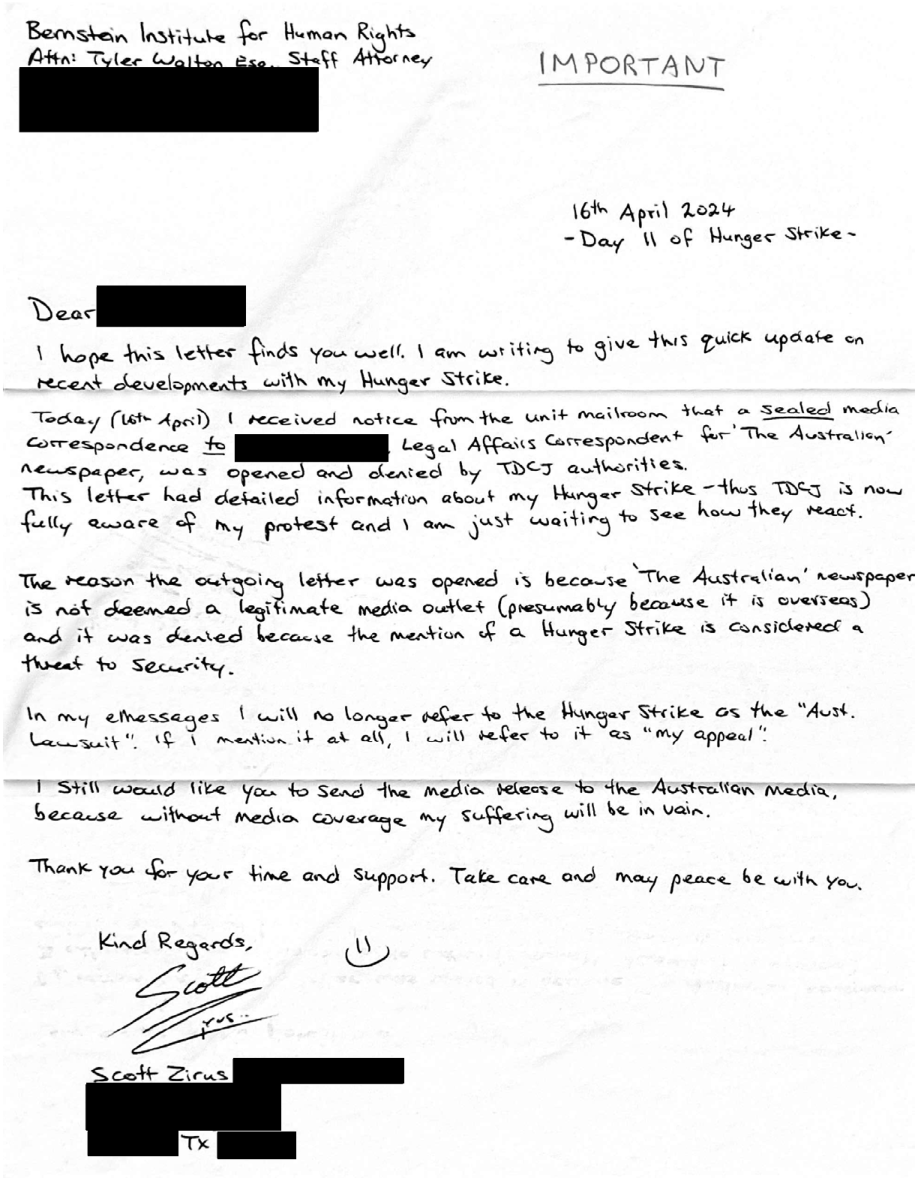Scott Zirus
I wish the world could read this letter so that they could know this:- False offers of help from legal practitioners
- Advocacy
- Addressing Three Strikes
- Addressing class inequities
- Withholding mail access and oppressive communication policies
- Excessive heat
- Program Creation
- Inadequate/inhuman food
- Legal work from the inside
- Corruption in the trial process
- Addressing war on drugs
- Retaliation/abuse of the disciplinary system
- Addressing Innocent/wrongful conviction claims
- Being met with silence by organizations
- Organizing
- Seeking a bridge/advocate between inside/out
Scott Zirus
transcription
Jhody D. Polk
The Jailhouse Lawyer Initiative
[REDACTED]
[REDACTED]
22nd February 2019
RE: NLG - Prison Chapter
Dear Jhody.
I hope this letter finds you well. I just read your 'Jailhouse Lawyer Initiative' in
the recent NLG Guild Notes. I saw that your initiative is simular to one that I
am currently organizing. I am asking the NLG to recognize the first Prison Chapter
of the National Lawyers Guild. I have attached the Proposed Charter for your review
I thought that maybe you could help us to be officially recognized and help us to
organize?
In Texas, the Law Library Clerks are NOT allowed to help other prisoners with
their legal work. For that reason , those who have a reputation as a Jailhouse Lawyer
can not work in the Law Library. Texas also does not provide any form of freeworld
Support for prisoners seeking collateral review or help to file a civil suit, So for Texas
Specifically, I feel the establishment of a NLG-Prison Chapter is very important for
obvious reasons. I hope that Chapters can pop up on every unit in Texas (and other
States).
The attached Proposed Charter was sent to the New York address of the NLG this
past December. To date , I have not had any response - I don't even know if it has
been received or if our proposal is being considered. Maybe you could inquire on our
behalf?
I think our Prison chapter could greatly benefit from the three goals of your initiative.
There is absolutely no training in Texas for Jailhouse Lawyers. Because of this there
is alot of substandard and incorrect legal work being done for other prisoners.
I can not count how many times a fellow prisuser has brought me a petition to
"fix" which was filed or argued wrong. Often it's too late to help.
So hopefully we can be of benefit to one another. Let me know your thoughts.
A bit about myself - I am an Australian national wrongfully convicted in Texas. I
have done 10 years on a 40 year sentence without the possibility of parole. I have
been a Jailhouse Lawyer for the past 9 years and I previously sat on the
Steering Committee for the NLG Mass Incarceration Committee for 2 years. I believe
that was 2014/15. Please feel free to check out the online resources for my
Innocence Campaign on the back of this letter. If you have any questions please
let me know. Take care and may Peace Be with you.
Kind Regards, =)
Scott Zirus [SIGNATURE]
PROPOSED CHARTER
NATIONAL LAWYERS GUILD - PRISON CHAPTER
*** A Collection of Jailhouse Lawyers under the Auspices of the National Lawyers Guild ***
OBJECTIVE:
> To unite and organize competent Jailhouse Lawyers at the unit level
> To share resources, caselaw, drafts, and templates.
> Legal Jujitsu - Members will refine their skills by participating in legal jujitsu
[Fellow Members will play the devil's advocate (To wit, the role of the State) to find
loop holes and weak spots in a legal argument in order to tighten up the argument and
pre-empt what the State may counter. This can be done on both an educational basis
and a practical real-life basis].
> Train the next generation of Jailhouse Lawyers (Rising Stars) and recalibrate any type
of misconceptions or bad habits of the more experienced Jailhouse lawyers. Also to
keep everyone up-to-date on new caselaw and trending issues.
> Promote the attitude to legal work that = 40% legal + 60% counseling.
[Being convicted and everyday prison life can be a traumatic experience. The duty of
a good Jailhouse Lawyer is not only to help someone with their legal work but to help
counsel and guide them through this experience].
> Myth Busting - to counter misinformation regarding legal issues and expose fraudulent
Jailhouse Lawyers who are merely scamming other prisoners for profit.
> To initiate and work on legal projects together.
DUTIES WITHIN CHAPTER:
* Chairman -------------------
* Vice Chairman | ------ Steering Committee
* General Secretary ----------
* Delegates / Coordinators
* General Member
MEMBERSHIP PREREQUISITES:
To join the Chapter, a Jailhouse Lawyer must:
1. Become a NLG Jailhouse Member;
2. Be nominated by current chapter member; and,
3. Gain majority vote of all current chapter members for admission.
>> The reason for this process is to discourage those prisoners who may not have the
best interest of the chapter at heart.
CHAPTER STRUCTURE AND PROCEDURES:
1. The purpose of the Chapter Steering Committee is to facilitate the general operations
of the Chapter. To form a Steering Committee a quorum of three must be elected as Chairman,
Vice Chairman, and General Secretary. The Steering Committee may include other members
upon the consensus of all three elected members.
2. A formal meeting shall be held at least once a month (although more often is encouraged).
The Steering Committee may meet in any manner which is most convenient - legal visits,
rec yard etc.
-1-
3. Elected positions on the Steering Committee are held for a term of one year - with
no term limits. Elections are held during the month of December, with positions taking
effect the 1st January. Elections may be held whenever a position is vacated or becomes
available. To gain a position the member must obtain a majority vote.
4. After the monthly Steering Committee meeting the General Secretary shall type up the
the meeting minutes and any notices to be immediately distrubuted to all appointed delegates
and coordinators.
5. Delegates and Coordinators are appointed by majority of the Steering Committee, and
carry the same term period (Jan-Dec). One of the first acts of the newly elected Steering
Committee shall be to either reconfirm some or all the current delegates and coordinators,
or appoint different members to these positions. Delegates and coordinators positions
may be put up to a majority vote of all Chapter members upon the Steering Committees
discretion.
6. The duty of a Delegate is to meet with their Member Constituents and discuss the full
contents of the Steering Committee minutes and notices, and then communicate via a report
their Member Constituents comments back to the General Secretary. Delegates may meet
with their Member Constituents in any manner which is most convenient.
7. The General Secretary shall then deliver and present these reports during the next
monthly Steering Committee meeting. If relevant, or necessary for transparency, the content
of the report will be included in the notices and discussed during the Steering Committee
meeting.
8. Unless otherwise prescribed, delegates will have at least 12 days to submit their
reports after meeting with the general Secretary. This is to ensure prompt communication
between the Steering Committee and all members. If possible, a specific deadline date
for the reports should be prescribed to encourage conformity.
9. All members have the right to submit the following for the Steering Committee's consider-
ation:
a) Motion for Hearing - asking the Steering Committee to add an issue or proposal
to the agenda to be addressed.
b) Plea of Assistance - either member asking for assistance with a legal question,
or seeking to have a non-members case taken up by another member.
(Pleas of Assistance will often be published in the notices)
c) Bill of Contest - making an official objection or raising a serious concern
to the Steering Committee's attention. This may be related to any official
business of the Chapter.
d) Motion In Confidence - a confidential correspondence directly to the Steering
Committee. The identity of the submitting member must be included in the motion
but shall not be made public to other members without the express permission
of the submitting member. If the motion is anonumous, it will not be entertained.
This motion shall be used sparingly and only under exceptional circumstances.
10. The Steering Committee shall have the right to issue a "Chapter Decree". This is
an official ordinance enacted by the Chapter which is binding upon all members. Each
decree shall be numbered and dated, and made public to all members. It is the intention
of the Chapter to eventually restructure the decrees into a Constitution. This will happen
once the structure and design of the Chapter as a whole has been satisfactially established.
11. The Steering Committee has the right to invalidate or amend any prior Chapter Decree.
This shall be done via inssuance of a separate decree.
12. It shall be a general rule that all Chapter business is to be kept confidential and
only discussed with other members.
13. This Chapter is independent of any governmental organization or institution.
14. The Steering Committee is required to submit a report of all Chapter business to
the National Lawyers Guild as frequently, and in whatever format, the National Lawyers
Guild dicates. When possible the report shall be sent as sealed legal mail.
-2-
15. A Coordinator is appointed to spearhead a particular issue. A Coordinator may select
other Chapter members to assist them if necessary. A Coordinator must submit a monthly
report to the Steering Committee.
16. Chapter members may hold dual/multiple positions or duties as necessary for the
sufficient operations of the Chapter.
17. Conflict Resolution shall be done informally when possible. In the event the conflict
can not be resolved informally, the issue shall be formally raised to the attention of
the Steering Committee via a Motion In Confidence. The Steering Committee may resolve
the issue themselves, or appoint a neutral party to facilitate the resolution.
18. Chapter membership may be revoked upon deliberate acts that violate the spirit of
the National Lawyers Guild, the ethos or decrees of the Chapter, or unduly disrupting
the unity or harmony of the members of the Chapter. Revocations of Chapter membership
shall be used only in the most extreme circumstances. For less extreme circumstances,
a member can be placed on probation for no more than 12 months. While on probation the
member can not hold a formal position and can not vote in official Chapter business.
The Steering Committee has full discretion regarding probation or revocation. Written
notice and an explanation for the decision will be made public if it is in the best interest
of the membership - otherwise, it will be deemed confidential.
19. The National Lawyers Guild, as our auspicing body, shall have the right to dicate
any requirement over this Chapter as they see fit.
*** This Proposed Charter was drafted by Scott Zirus, 21st December 2018 ***
SIDEBAR: Upon approval of the Charter by the National Lawyers Guild, all interested parties
will convene to vote on the official establishment of this Chapter and elections
will be immediately held to form a Steering Committee.
CONTACT: Scott Zirus #[REDACTED]
[REDACTED]
[REDACTED]
[REDACTED] TX [REDACTED]
-3-
Scott Zirus
transcription
Bernstein Institute for Human Rights
c% Tyler Walton, Esq.
25th October 2022
RE : Direct Line of Communication for Conversations on Strategy
UN Petitions Resent
- Please see recent developments ~
Dear [Redacted],
I hope this letter finds you both in good health . Thank you very much for Your 3rd October 2022 letter about our NLG-Prison chapter's new human rights initiatives . We are very excited to open a more direct line of communication for conversations on strategy . There are a number of ways that we can do this:
The quickest way to communicate is via Jpay and /or phone calls . At present ! can receive Jpays but I can not respond - However , TDCJ is currently in the process of rolling out Tablets and once my unit receives them I will be able to respond to JPays . This may happen sometime in the next few months .
If you would like to register your phone , this can be done by visiting :
www.texasprisonphone.com
My details for both Jpay and the phone is "
Full Name: Scott [Redacted] Zirus TDCJ ID No. [Redacted]
If you ever wish to set up an Attorney Phonecall ( which is privileged ) you can do so by calling the Unit [Redacted] on: [Redacted]
I believe they will forward you to the Unit Law Library to schedule the call .
All mail sent from the Bernstein Institute , MacDougal address ( and the washington Square Legal Services, Sullivan address ) are considered "legal mail" by TDCJ. This means I can send and receive privileged Sealed correspondence . This will allow us to be very candid in our correspondence .
Here is an update on recent developments:
> The Buddhist lawsuit was filed 23rd August 2022 and is styled: [Redacted] Cause No. [Redacted]
It is filed ( as all our other suits will be ) in the Southern District of Texas, [Redacted] Division (www. txs. uscourts . gov ) . The Federal Judge is [Redacted] , which is good because I have won an 8th Amendment medical denial suit with him before.
> The Excessive Heat / AC Lawsuit will be filed this week . Once we receive the cause number I will promptly inform you .
> Our Inadequate Food lawsuit is the next one to be filed and we estimate that will be ready to file this coming January.
In regards to the UN Petitions that we filed back in May 2022 . we had not received any correspondence from the UN , so I asked the Australian Consulate- General in [Redacted] ( I'm an Australian national) if they could confirm receipt of our petitions - so they kindly sent an email on our behalf . The ' Petitions and Urgent Actions Section ' of the Office of the United Nations High Commissioner for Human Rights responded that they had not received our complaints.
Upon receiving this news, our NLG-Prison chapter immediately held an emergency ' crisis' meeting to decide what to do next . We originally mailed the petitions in 2 separate packages directly to Geneva , we have decided to resubmit them via email . This should be done by mid-November . It is logistically difficult to organize but it may be the only viable option to get it filed.
we surmise that there are only two possibilities to explain why our four UN Petitions were never received : 1) Interception - Since TDCJ does not consider International mail as legal or privileged, the two packages cannot be set out sealed and the mailroom can inspect and read it . It is possible the packages never left the Unit; or 2) Lost in the mail - that although they were sent in two separate packages over two weeks apart , they both got lost in the mail , or after 6 months are somehow still in transet .
The resubmitted petitions will be sent by Certified mail to a friends friend to Scan and email to the OHCHR. We will request that the OHCHR communicate by mail directly with us - however , if our mail was actually intercepted there may be a problem because it will not be considered privileged mail and will be opened and read before we receive it .
To cure this , we thought that maybe we ask the OHCHR to also send a copy of all correspondence to the Bernstein Institute . This way we will know if
we don't receive their correspondence . Is this something that the Bernstein Institute would be happy to do ? If so , please let me know ASAP if you would prefer it done by mail or through email. If email, please Jpay it to me so I can include it in our resubmitted petitions .
I believe that is all for now . Thank you for your interest in our initiatives . I feel that your support will make all the difference . Take care and may peace be with you .
with Respect ,
Scott
Scott Zirus [Redacted] TX [Redacted]
Scott Zirus
transcription
Bernstein Institute for Human Rights
c/o Tyler walton, Esq. / [REDACTED]
[REDACTED]
[REDACTED]
10th June 2023
RE : INNOCENCE CLAIMS MODULE
Dear [REDACTED],
I sincerely hope this letter finds you well. Let me start by saying, as an
innocent Australian national wrongfully convicted by Texas, I am very pleased
that JLI has chosen to create a module on Innocence claims. I wish I had
it 14 years ago. I especially liked two aspects of the module.
The first is the emphasis placed on supporting the claims beyond the legal
system. As Damien Echols explains: "You can have all the evidence in the world
that you didn't do it, but unless theres outside attention focused on your case,
it'll get swept under the rug ! Damien was one of the West Memphis Three who
walked out of prison in August 2011 after having his name cleared of the 1993
triple homicide of three 8-year-old boys. I agree with Damien 110%. My personal
experience is that Courts are extremely reluctant to overturn the conviction of a
person who may be innocent unless there is significant public attention on the
case. In an ideal world it should be our innate sense of injustice that should
motivate a Court to do the right thing - not the fear of public accountability. But
we do not live in an ideal world.
In my innocence campaign I have published a free ebook entitled "Guilty Until
Proven Innocent" that exposes the facts behind my wrongful conviction, and explores
the phenomenon responsible for the wrongful convictions of thousands of innocent
people in America. By October this year I hope to have a website advocating
my innocence, as well as a Facebook and crowdfunding page. Im also looking into
the possibility (and logistics) of recording a podcast from my prison cell by
recording my phone calls on my tablet. If this proves possible, I will call it
"Innocent In Prison Podcast." I have alot of state imposed obsticles in my
way, but I am rather creative in circumventing them.
The second aspect of the module that I liked was the emphasis placed on the
jailhouse lawyer being a kind of counselor to the innocent person. Trust
me when I say that being wrongfully convicted is an extremely traumatic
experience. It can prove extremely difficult to process that trauma. I have
attached a peice that I wrote entitled "Never Give Up!". It is meant as an
encouragement to those wrongfully convicted. You may do as you wish with it.
The only constructive criticism I have to offer is that I believe the module
should explain the Herrera and Schlup innocence claims since this is the
legal standard established by the US Supreme Court.
I have attached an article that I wrote about those standards. Again, you may
do as you wish with the article.
I noticed that you have already sent the module out to the entire membership
network. I apologize for taking so long to respond. Hopefully my feedback is not
too late to be beneficial to The final copy of the module. I will endeavour to
respond quicker next time.
Until then, take care and may peace be with you.
Kind Regards, =)
[SIGNATURE]
Scott Zirus #[REDACTED]
[REDACTED
[REDACTED] TX [REDACTED]
eMessages: (Texas prisoners can now send and receive eMessages /email)
www.securustech.net create an account
TDCJ NG. [REDACTED] by signing up for
SID No. [REDACTED] the Securus App
Penpal Profile:
prisoninmates.com/profile/ScottZirus@1640002
NEVER GIVE UP!
Henry David Thoreau once wrote: "... how much more eloquently and effectively
[the prisoner] can combat injustice who has experienced a little in his own
person".
How very true. I have come to realize that suffering has a great deal to
teach us. Suffering, despite all its negative connotations, provides the
opportunity to fortify our resilience. Is it enjoyable? No - but it is this
resilience to suffering that gives us strength and endurance to combat injustice.
These two qualities are essential when you are wrongfully convicted and face
an inherent up hill battle to correct the governments indifference towards
truth. Logic dictates that truth should always win over what is merely
prescribed, so when I was first wrongfully convicted I thought that the justice
system was self-correcting and that the Courts would realize their error
and release me. But that perspective has proven extremely naive. In fact,
the Courts have been outright hostile towards the possibility that they convicted
an innocent person. Every step of the way I have meet seemingly insurmountable
obsticles to proving my innocence - most of them constructed by statutory
barriors that are designed to impede a prisoners ability to meaningfully
litigate their case. Needless to say, the battle is far from an easy one.
The advice that I give any person who is innocent in prison like myself:
NEVER GIVE UP! I know what it feels like to be overwhelmed with a sence of
futility. I know what it feels like to be abandoned and disenfranchized.
But, truth is the truth even if you are in the minority of one - so never
give up on the good fight. Advocate. Litigate. Liberate. Remember that every
step forward is still a step forward no matter how many steps back you may
encounter. The arc of justice naturally curves towards truth. It only requires
time and unquenchable persistence. NEVER GIVE UP!
Py Scott Zirus
Scott Zirus is an Innocent Australian National wrongfully convicted
by the State of Texas. USA.
www.prisoninmates.com/profile/ScottZirus01640002
HERRERA and SCHLUP Claims
As defined by the U.S. Supreme Court, assertions of Actual Innocence are
categoriezed as either:
> Herrera-type claims [Herrera v. Collins, 113 S.Ct. 853 (1993)]
- These claims involve a Substantive Claim in which the petitioner
asserts a freestanding, bare claim of innocence based solely on
newly discovered evidence. Establishing a bare claim of actual
innocence is considered a "Herculean" task. In a Herrera claim,
the burden of proof is "clear and convincing evidence".
> Schlup-type claims [Schlup v. Delo, 115 S.Ct. 851 (1995)]
- These claims are a Procedural Claim in which the petitioner's claim
of innocence does not alone provide a basis for relief but is tied
to a showing of constitutional error at trial. In a Schlup claim
the burden of proof is "more likely than not" (Preponderance of
the evidence).
These two types of Actual Innocence claims require the petitioner to meet
different burdens in order to obtain habeas relief. Here is a basic breakdown
of those burdens:
REVIEW UNDER HERRERA
In reviewing a Herrera claim, the habeas court must first consider whether
the petitioner presented "newly discovered evidence" that affirmatively
establishes their innocence. If the petitioner presents such evidence, the
habeas court then determines whether the petitioner proved by clear and
convincing evidence" that no reasonable juror would have convicted them
in light of the newly discovered evidence.
"Newly discovered evidence" is defined as proof which could not have been
discovered with reasonable diligence and produced at the trial. It does not
include newly recollected evidence.
"Clear and convincing evidence" is an intermediate standard of proof which
falls between the ordinarly civil 'preponderance of the evidence' (See, Schlup)
standard and the usual criminal 'beyond a reasonable doubt'. It is defined
as that measure or degree of proof which will produce in the mind of the
trier of fact a firm belief or conviction as to the truth of the allegations
sought to be established.
Herrera-type relief was deliberately designed to be difficult - hence why
it is often considered a "Herculean" task. The most common type of evidence
used to obtain relief under the Herrera bare innocence claim is DNA or other
scientific evidence indicating that the petitioner was excluded from being
the perpetrator.
Relief can sometimes be obtained through a credible recantation of the allegations
or some other type of evidence establishing the true identity of the perpetrator.
REVIEW UNDER SCHLUP
The standard under Schlup is slightly easier than the one required by Herrera.
In reviewing a Schlup claim, actual innocence serves as a "gateway" through
which a petitioner may pass whether the impediment is a procedural bar or
expiration of the statute of limitations. When an otherwise time-barred habeas
petition presents evidence of innocence so strong that a court cannot have
Page 1 of 2 Scott Zirus
confidence in the outcome of the trial unless the court is also satisfied
that the trial was free of non-harmless constitutional error, the court may
consider the petition on the merits.
Schlup requires a petitioner to support their allegation of constitutional
error (e.g. ineffective assistance of counsel) with new reliable evidence
that was not presented at trial. This evidence may include: exculpatory
scientific evidence, trustworthy eyewitness accounts (including recantations)
or critical physical evidence.
The habeas court considers all the evidence, old and new, incriminating and
exculpatory, admissible at trial or not. On this complete record, the court
makes a probabilistic determination about what reasonable, properly instructed
jurors would do. See, House v. Pell, 126 S.Ct. 2064 (2006).
The standard of Schlup does not require absolute certainty about the petitioner's
guilt or innocence. Rather, a petitioner's burden at the gateway stage is
to demonstrate that "more likely than not" (preponderance of the evidence),
in light of the new evidence, no reasonable juror would find the petitioner
guilty beyond a reasonable doubt (or, to remove the double negative, that
more likely than not any reasonable juror would have reasonable doubt).
Preponderance of the evidence is the burden of proof at the gateway stage
of a Schlup claim. Preponderance is a standard defined by "more likely than
not", and is a lesser burden than "clear and convincing evidence" (See, Herrera).
Preponderance of the evidence means that the evidence on one side out-weighs,
or is more than, the evidence on the other side. This is not necessarily
more in the number of witnesses or quantity, but in its effects on those
whom consider it. In other words, the term refers to evidencce that has more
convincing force than that opposed to it - yet, it is not a "clear and convincing"
standard as in Herrera.
For example, here is how a Schlup claim works: Presume that your first habeas
petition was denied and your state has a procedural rule that bars the filing
of a second or successive petition, if you can establish that it is "more
likely than not" that you are innocent based on, lets say, newly discovered
testimony from an eye witness that was not called to testify at trial, this
may get you through the "gateway" to overcome the procedural bar on successive
habeas petitions, and have your ineffective assistance of counsel for failing
to call said witness, reviewed on its merits.
It sounds counter-intuitive, but despite establishing your actual innocence
under Schlup, your conviction will actually be overturned under ineffective
assistance of counsel. This is because your innocence was only the "gateway"
used to revive that claim to be reviewed on its merits.
However, it is rather easy to construct an ineffective assistance claim when
you can establish actual innocence. For example, failure to properly investigate
or call a witness.
FURTHER READING
"The Texas Citebook" by S. Brandeis-Ruiz
- available from: Forbidden Books Library, P.O. Box 534, Schererville, IN
46375
Herrera v. Collins, 113 S.Ct. 853 (1993)
Schlup v. Delp, 115 S.Ct. 851 (1995)
McQuiggins v. Perkins, 133 S.Ct. 1924 (2013)
House v. Bell, 126 S.Ct. 2064 (2006)
Page 2 of 2 Scott Zirus
Scott Zirus
transcription
________________
SCOTT [Redacted] ZIRUS
RE: TEXAS PRISONERS STATEMENT ABOUT TDCJ SYSTEMWIDE LOCKDOWN...
18 Sep 23
________________
TEXAS PRISONERS STATEMENT ABOUT TDCJ SYSTEMWIDE LOCKDOWN There is a humanitarian crisis in the Texas Department of Criminal Justice - an it isn't just drugs. On 6th September 2023 the TDCJ implemented a systemwide lockdown to conduct a "comprehensive search" of all correctional facilities within TDCJ because of an alleged rise in dangerous contraband and drug-related prisoner homicides. This systemwide lockdown is nothing more than a smoke screen. Although illicit drugs in Texas prisons is a problem (and has been for some time) it is not the reason for the increase in prisoner-on-prisoner homicides. It is actually a symptom of a larger humanitarian crisis which TDCJ is attempting to hide from public scrutiny. The real issue is the dangerous combination of understaffing, excessive heat, insufficient food, and a dysfunctional Texas judicial system that has nullified any hope of meaningful appeal or redress of grievances. These factors have not only resulted in increased drug use and prisoners on prisoner violence and homicide, but also a significant increase in suicide rates and self-harm.
Recently these issues were brought to the attention of the UN Special Rapporteurs for Torture, and the Right to Food. They are also the subject of prisoner lawsuits in an attempt to challenge these dangerous and inhumane conditions. Although it is true that there has been a huge increase in homicides (16 so far this year), TDCJ's justification that this is caused by a rise in dangerous contraband and drug use is pure conjecture as there is no quantitative way for TDCJ to measure either an increase or decrease in drug use. In actuality the homicides and suicides are a direct result of the conditions prisoners are forced to endure and the disenfranchisement prisoners suffer. The assertion that this systemwide lockdown is designed to break up the drug networks is disingenuous because such networks inevitably go dormant during a lockdown. Drugs and other contraband are disposed of, and because TDCJ announced their intention to go after t drug networks they have been given advanced warning. If TDCJ really cared to solve their drug problem then they need to invest in society by turning away from punitive "justice", and more towards restorative justice where the prisoner is provided a meaningful opportunity for rehabilitation. By helping prisoners overcome their mental health problems of addiction, they would destroy the demand for drugs in prison and sharply effect the profitability of the drug networks. Until Texas abandons the archaic "Tough on Crime" and instead gets Smart on Crime, prison will only produce more criminals. Tough on Crime is only tough on tax payer wallets. In response to the bold allegation by TDCJ that drugs are smuggled in through visitation, this misses the underlying truth of the matter. The vast majority of drugs is actually smuggled in by low paid prison employees - often under the auspice of their high ranking office who get a kickback but can conveniently claim plausible deniability she their subordinate is caught. This is evident from the fact that during COVID lockdown all forms of visitation was suspended - yet the drug problem still persisted. TDCJ also claims that drugs enter the facility through the mail, but cards were banned since before COVID and some units have been using digital mail for months, and the drug problem still persists. TDCJ does not actually want to fix the problem of drugs in their facilities. They simply want to create a smoke screen to hide the inhumane conditions in regards to excessive heat, insufficient food and understaffing, while manufacturing a crisis to potentially bolster their funding. This systemwide lockdown could go on for months and it will only exasperate the current humanitarian crisis by locking prisoners in cells in triple digit heat, with little access to water or heat mitigation by feeding prisoners sacked meals that have insufficient calories and are grossly deficient in
nutrients by stretching the already understaffed employees thinner to conduct so-called "comprehensive searches" and on some units, cells have recently been retrofitted with flushometers that lack prisoners out of the cell toilet for an hour if they flush more than once in 5 minutes - this significantly increases cell mate conflict by creating unhygienic conditions in triple digit heat with insufficient guards to do security checks. Are these conditions not the recipe for more homicides and suicides? Within the first week of the lockdown, TDCJ has discovered at least 2 more suicides. Until the true causes of this humanitarian crisis are addressed, Texas prisons will continue to be dangerous and unconstitutional. When it comes to smoke screens it is important to remember that where the is smoke, there is often fire. If left it will only spread.
Scott Zirus
transcription
Jailhouse Lawyer Initiative
c/o Tyler Walton Esq.
[REDACTED]
[REDACTED]
10th September 2023
RE: Role of JLI Inside Advisor
and vision of what JLI could look like going forward
Dear JLI,
I Sincerely hope this letter finds you all well. I am writing in response to your 22nd August letter in order to answer the following:
-What do you see as the role for the JLI Inside Advisors?
and
-Visions of what it could look like going forward.
Here is my response :
I believe the role of a JLI Inside Advisor is to act as a contact point between the
JLI and the inside jailhouse lawyers in order to organize towards our ultimate
goal - the legal empowerment of incarcerated people.
The JLI Inside Advisor is the voice that represents the will of the jailhouse lawyers
community. My vision for JLI includes the following
1. Unification
2. Education
3. Organization
As you may know, I founded the National Lawyers Guild-Prison Chapter back before
COVID and I am the Chairperson of the NLG-PC Steering Committee. I see this role
and that as a JLI Inside Advisor as the same.
Unification
The passage of the AEDPA and the PLRA has been a coordinated and systemic way to
disenfranchise incarcerated people by depriving them of meaningful access to the courts.
This was a strategic blow because it was in the courts where incarcerated people
had the ability to assert their rights and hold public officials accountable. If the tiger
has no teeth, he is no threat to the zoo keeper.
Jailhouse lawyers are currently an unorganized and fragmented peoples. If there was
some degree of cooperation or cohesion amongst jailhouse lawyers, then there can
be a formidable challenge to the prison industrial complex.
For this to happen it is essential that grassroot collectives are organized by jailhouse
lawyers. This is what we are doing with the NLG-PC. The NLG-PC can be used as
a model that other collectives can use to form their own structures.
JLI Inside Advisors can help facilitate the institution of these collectives in the facility
or states.
Education
The primary intent of a collective is to lift the caliber of jailhouse lawyers. Because
most jailhouse lawyers are self-taught there is the very real possibility that they can do
more damage than good. There is also the threat that con-artists use the naivete
of prisoners about the law for financially benefit.
It would be very beneficial if the JLI and the collectives could work together to educate
jailhouse lawyers. This can be done in 2 ways: 1) the modules that JLI is currently creating
and 2) the collectives creating a mentoring program that provides an opportunity for more
experienced jailhouse lawyers to teach those new jailhouse lawyers coming through the ranks.
It would also be awesome if JLI could have a "Bar Equivalent" test that jailhouse
lawyers could take that shows that if they were able to sit for the Bar Exam they would
likely pass. This does not mean they can legally practice law, but it does show other prisoners
that that jailhouse lawyer is sufficient in the law .
After passing the Bar Equivalent, other tests could be taken that show they are sufficient in
a specialized area of law i.e. Federal Habeas Corpus; RLUIPA; contract law. This will also
help build a Curriculum Vitae.
Organization
Once a collective is established, they can be paired with a JLI volunteer/s who are available
to answer questions, doing research the collective can't do themselves, and being a point of
contact to facilitate communication amongst over collectives. In this regard these volunteers
can act as a bridge for collectives to organize legal or social action by facilitating
communication through the other JLI volunteers.
If JLI does not have sufficient number of volunteers, JLI could network with like
organizations. Here is a diagram of how it could work:
ACTION --collective <--> volunteers
--collective <--> volunteers
For example, NLG-PC has a series of lawsuits concerning excessive heat, religious rights,
deficient food, overcrowding, and digital correspondence. These issues effect all Texas prisoners.
It would be beneficial to work with other collectives on these suits to ensure everyone is
represented and there is cohesion amongst the strategy or legal arguments. To further
drive home this point, there is an attorney attempting to organize mass lawsuits on the excessive
heat/AC, but he refuses to cooperate because we are prisoners - despite the fact we are at least
2 years ahead of him. Having a network of collectives and JLI volunteers to do things we can't
do for ourselves like pick up the phone and call that attorney, or find expert witnesses etc. will
mean the difference between a successful suit and one that does not see its potential.
These are my thoughts. Thank you for listening. Take care and may peace be with you
Kind Regards, =)
[SIGNATURE] [REDACTED]
Scott Zirus [REDACTED]
Scott Zirus [REDACTED]
[REDACTED]
[REDACTED] TX [REDACTED]
Scott Zirus
transcription
CASELAW: AEDPA Statute of Limitations (1)
· Commencement of AEDPA Clock
28 USC 2244(d)(1)(A)
- The limitation period shall run from ... the date on which the judgment became
final by conclusion of direct review of the expiration of the time for seeking
Such review
Gonzalez v. Thaler, 132 S.Ct. 641 (2012)
- Held: That a judgment is "final" when all options to appeal have expired or
all appeals have been denied
Jimenez v. Quarterman, 129 S.Ct. 681 (2009)
- Explaining that convictions are not final if it is still "capable of modification through
direct appeal ... to the [supreme] Court on certiorari review."
Clay v. United States, 123 S.ct. 1072 (2003)
- "For the purpose of starting the clock on S2255's one-year limitation period, a
judgment of conviction becomes final when the time expires for filing a
petition for certiorari contesting the appellate court's affirmation of the
conviction"
Erickson v. Davis, 895 F.3d 372 (5th Cir. 2018)
- The date which conviction becomes final, and the date that must be used to
calculate one-year deadline for filing a S2254 petition is 90 days after the
Texas Court of Criminal Appeals refuses PDR. The fact that an applicant did
not actually file a petition for certiorari is insignificant
Rodriquez v. Thaler, 664 F.3d 952 (5th Cir. 2011)
- After a guilty plea, the AEDPA'S one-year limitation period commences after
30 days to file a notice of appeal.
Moreno v. Director, TDCJ, 2008 US Dist. LEXIS 42479
- "The Fifth Circuit has consistently held that where prisoners do not file direct
appeals, the limitations period begins to run 30 days later, at the
experation of time for doing so !!
Foreman v. Dretke, 383 F.3d 336 (5th Cir. 2004)
- "Direct review, which includes a petition for certiorari to the United States
Supreme Court, occurs when the Supreme court either rejects the petition for
certiorari or rules on its merits. If no petition is filed, then a court examines
the second method of creating finality, the expiration of the time for
seeking such review."
See also, Roberts v. Cockrell, 319 F.3d 690 (5th Cir. 2003)
Derman v. United States, 298 F. 3d 34 (1st Cir. 2002)
- Conviction for federal defendant who fails to file petition for writ of
Certiorari becomes final when period in which he reasonably might have
done so expires
IN A NUTSHELL - Your one-year AEDPA clock begins to run: (2)
. when the Supreme Court rejects petition for writ of Certiorari
-or-
. when the 90 days to file a petition for certiorari expires.
(i.c. 90 days after refusal of PDR)
-or-
· In a guilty plea case, the time to file a Notice of Appeal expires
(i.e. 30 days after conviction)
-or-
. when a direct appeal is filed, but you do not file a PDR, the clock
begins 30 days after the denial of direct appeal
Examples:
[Timeline graphic]
Conviction - 30 days - begin date if plea of guilty and as direct appeal - direct appeal - 30 days - begin date if no PDR filed - PDR - 90 days - begin date if no certiorari filed - certiorari - begin date in all other circumstances
Another commencement date can also be "the date on which the factual predicate of
the claim or claims presented could have been discovered through the exercise of
due diligence" See, 28 USC 2244(d)(1)(D).
Owens v. Boyd, 235 F.3d 356 (7th Cir. 2000)
- Time period begins running when prisoner knows, or through diligence could
discover, important facts, not when prisoner recognizes their legal significance.
Souliotes v. Evans, 622 F.3d 1173 (9th Cir. 2010)
- 2244(d)(1)(D) does not require that petitioners exercise maximum diligence
possible in uncovering factual bases of their claims, but only "due" or "reasonable"
diligence
see also, Moore v. Knight, 368 F.3d 936 (7th Cir. 2004)
Wims v. United States, 225 F. 3d 186 (2nd Cir. 2000)
Starns v. Andrews, 524 F.3d 612 (5th Cir. 2008)
· Tolling of AEDPA Clock (3)
28 USC 2244(d)(2)
- The time during which a properly filed application for state post-conviction
or other collateral review with respect to the pertinent judgment or claim
is pending shall not be counted toward any period of limitation under
this statute.
Holland v. Florida, 130 S.Ct. 2549 (2012)
- The time during which a properly filed application for state post-conviction
review is pending shall not be counted against the one-year habeas limitations
period.
Rhines v. Weber, 125 S.Ct. 1528 (2005)
- The limitations period tolled during the pendency of a "properly filed
application for state post-conviction or other collateral review" -but the
filing of a petition for habeas corpus in federal court does not tell the
limitations period
Lawrence v. Florida, 549 U.S. 327 (2007)
- Filing of certiorari petition in Supreme Court after completion of state-count
post-conviction review held NOT to toll limitations period for state prisoners
filing of federal habeas corpus petition under 28 USC 2244(d).
Hutson v. Quarterman, 508 F.3d 236 (5+h Cir. 2007)
- "This Court concludes that a motion to test DNA evidence under Texas
code of Criminal Procedures, article 64 constitutes 'other collateral review'
and thus tolls the AEDPA'S one-year limitations period."
- But see, Espinoza v. Stephens, 3:13-CV-3686 (motion for counsel
under Chapter 64 does NOT toll AEDPA)
Lookingbill v. Cockrell, 293 F.3d 256 ( 5th Cir. 2002)
- Motion for Reconsideration of an order denying Texas habeas petitioner's
state habeas relief tolls AEDPA's limitations period for federal habeas petition
only as long as the Texas courts take to resolve the motion or suggestion for reconsideration.
- See also, Emerson v. Johnson, 243 F.3d 931 (5th Cir. 2001)
IN A NUTSHELL - Your one-year AEDPA clock tolls (pauses) during:
· State post-conviction review (i.e. state Habeas corpus)
. Motion for DNA Testing (i.e. Tex. Code Crim. Proc., art. 64)
. motion to Reconsider/Rehearing (i.e. after denial of state Habeas Corpus)
Your one-year AEDPA clock does NOT toll during:
· Petition for writ of Certiorari after denial of state post-conviction review
(eg. State Habeas corpus of motion for DNA Testing
. motion for Counsel for DNA Testing (if Motion for DNA Testing not already filed)
. Petition for Federal Habeas Corpus.
Example:
[TIMELINE GRAPHIC]
AEDPA clock commences - 120 days - XX (tolls during DNA motion) - 98 days - XX (tolls during State Habeas Corpus) - 147 days (Federal Habeas Corpus MUST be filed during this period) -- AEDPA clock ends = 365 days
- Equitable Tolling of AEDPA Statute of Limitations (5)
Holland v. Florida, 130 S.Ct. 2549 (2010)
- HELD: 28 USC 2244(d) is subject to equitable tolling in appropriate cases.
A prisoner is entitled to equitable tolling only if he shows (1) that he
has been pursuing his rights diligently, and (2) that some extraordinary
circumstance stood in his way and prevented timely filing.
The diligence required for equitable telling purposes in a habeas case is
reasonable diligence , not maximum feasible diligence.
Felder v. Johnson, 204 F.3d 168, 174 (5th Cir. 2000)
- Extraordinary circumstances may be found in situations where a petitioner
is actively misled about the cause of action or is prevented from asserting his right
to file by some extraordinary factor beyond his control.
Easterwood v. Champion, 213 F.3d 1321, 1323 (10th Cir. 2000)
- Finding a prisoner's access to published legal materials is established once
the prison library receives the materials, not when the materials were
published.
NOTE: Extraordinary circumstances necessary to establish equitable tolling is very
difficult, so it is best not to rely on equitable telling unless you have to.
Always try to file your Federal Habeas Corpus before the one-year AEDPA
clock expires/ends.
McQuiggin v. Perkins, 133 S.Ct. 1924 (2013)
- HELD: That actual innocence is an "exception" to the AGEDPA's time limitations
· Computing Filing Dates
Windland v. Quarterman, 578 F.3d 314, 315 (5th Cir. 2009)
- Habeas petition is pending for purposes of tolling under 2244(d)(2) on the
day it is filed through (and including) the day it is decided.
Houston v. Lack, 108 S.Ct. 2379 (1988)
- Establishes 'Prison Mailbox Rule' - That the pleadings of pro se prisoners
shall be deened "filed" at the time they are delivered to prison authorities
for forwarding to the court clerk.
See also, Richard v. Thaler, 710 F.3d 573 (5th Cir. 2013)
Spotville v. Cain, 149 F.3d 374 (5th Cir. 1998)
Read: Federal Rules of Appellate Procedure, Rule 26 - "Computing and
Extending Time" - for guidance.
SOURCE: These caselaws were taken from "The Texas Citebook"
*star* by S. Brandeis-Ruiz (available on Amazon or from the
publisher: Forbidden Books Library, PO Box 534, Schererville
IN 46375)
Jailhouse Lawyers Initiative
c/o Tyler Walton, Esq.
Bernstein Institute for Human Rights
[REDACTED]
[REDACTED]
15th September 2023
RE: Hab Module - Federal Habeas Corpus
Dear [REDACTED],
I hope this letter finds you well. I wanted to write and answer some of the
questions that you had regarding federal habeas corpus. Over the past decade
I have done many federal habeas corpus, but have had little success. This is not
for lack of skill or effort. Often prisoners at the state level are procedurally
barred by the AEDPA statute of limitations. To meaningfully help another prisoner
at the federal habeas level it is absolutely necessary that they properly
understand the AEDPA one-year clock. I have attached some caselaw on the
Statute of limitations which explain a few of the ways it is applied. Feel free
to use them in your module - but if you do, I would appreciate it if you
could list the source as the Texas Citebook, and provide the postal address
to the publisher. I am the author of this legal reference book (under the
pseudonym 'S. Brandeis-Ruiz') and it would be beneficial to myself and
other prisoners if they were made aware of this legal reference. It has been
very difficult to promote this book to other jailhouse lawyers. Thank you.
I have never discovered an avenue to use the futility exception to state remedy
exhaustion requirement in Texas. Although I believe state habeas review in Texas
is meaningless and is void of due process, you still need to go through the
process in order to exhaust all issues at the State level.
In regards to the waiver of the exhaustion requirement, I believe that this is
something that state counsel will state in their brief. It would be very rare and
I imagine it may happen in actual innocence case - but even then, state counsel may
not waive exhaustion because such claims would best be addressed at the lowest
possible judicial level.
In regards to requesting a stay and obeyance - when I have had these granted I
have argued that something unforeseen has arisen (usually newly discovered evidence
or witness) and that it is in the "best interest of judicial economy" that the stay
and abeyonce be granted to allow the petitioner to fully and proper exhaust the
issue at the state level.
when doing legal research for habeas claims I focus on the short list of cognizable
claims - all of which are based on Supreme Court precedent. I always look for
alternative interpretations of those precedents in other circuits. This allows you
to build a contested issue.
I have found that my cases have had better review at the federal level when
we argue an unreasonable determination of the facts, over the unreasonable
application of clearly established Federal law.
Post cases involving successful habeas claims are helpful to read - but the ones that
were denied are better because it allows you to learn what NOT to do.
Dissenting opinions are very valuable sources of arguments that can be used if
the established precedent is not favorable.
Are there any core case for understanding the current state of habeas law
that would be most helpful for people starting out to read and shepardize?
- Yes, and they are all available in The Texas Citebook =)
Managing expectations and hopes as to the success rate of habeas claims is
extremely important. Often I tell people that the Courts unfairly side with the
State because they have an invested interest in reinforcing convictions. So
although we can be 110% right, that does not mean the judge will be able
to put his bias aside and rule on a case impartially.
I personally am actually innocent and it can be very difficult to battle litigation
fatigue. I am fortunate in that I have an inquenchable thirst for justice and I
have noticed that those most likely to become disenfranchised by a legal setback
are those whom are religious. Often they place too much hope in their God to make
things work out in their favor - and when it doesn't it can be earth shattering
as they are forced to realize the universe does not actually work the way
they thought. It is best to manage this misplaced hope at the beginning of the case
by explaining that their will is not always the same as Gods will but they must plant
all the seeds if they want God to water them (Disclaimer: I'm a non-theist
Buddhist).
What are some things you wish you would have known about habeas law when
you first started out? I wish I had The Texas Citebook - honestly that is part
of the reason I put that book together to empower other prisoners because a lot
of time is spent (sometime wasted) researching precedents and standards of review.
I would have benefitted greatly had I a book that broke down all the precedents
and what I can and can not raise on habeas corpus.
Anyways, I hope that helps you. If you have any questions or need more specific
details, please feel free to eMessage me (see below). Take care and may peace
be with you.
Kind Regards, =) eMessage: www.SecurusTech.net
[ID: [REDACTED]]
[Signature]
Scott Zirus Scott Zirus [REDACTED]
[REDACTED]
Scott Zirus
transcription
Overview of NLG-PC Initiatives (oct. 2023) Attn: [Redacted]
On 6th Sept. 2023 the Texas Department of Criminal Justice implemented a system-wide lockdown to conduct a "comprehensive search " of all correctional facilities within TDCJ because of an alleged rise in dangerous contraband and drug-related prisoner homicides. On 18th Sept. 2023 I sent [Redacted] an emessage which contained an op-ed entitled "Texas Prisoners Statement about TDCJ Systemwide Lockdown " where I explain that this lockdown was nothing more than a smoke screen to hide the humanitarian crisis caused by a dangerous combination of understaffing (equivalent of over crowding) , excessive heat, insufficient food , and a dysfunctional Texas judicial system that has nullified any hope of meaningful appeal or redress of grievances.
Since the lockdown conditions have gotten worse . My unit [Redacted] experienced 3 sulcides while on lockdown and within a week of coming off lockdown we had a fatal OD of a young man who was going home 4 days prior to his death. Because of his death from drugs - which were meant to be eradicated by the comprehensive searches - we may go back on Lockdown. This will mean conditions will only get worse. Midway during the Lockdown prisoners organized a Hunger Strike to draw public attention to our conditions, we had between 90 - 120 prisoners participate but within 9 days the strike was over because we could not get media coverage, we had reporters contact the NLG-PC General Secretary [Redacted] but all emessages and letters were blocked between [Redacted] and the Reporters . The hunger strike was spontaneous and we did not have the framework in place to ensure it was successful . Next time we will hopefully have it better organized. The main issue is unrestricted communication between us and the freeworld when we are in situations like that .
In light of events from the previous month, the NLG-PC Steering Committee has revamped our Initiative strategy and put together a 5 year plan. we are hoping that JLI will help us put these initiatives into action by helping us do things we can't do because of our incarceration . In this correspondence those things will be written in red
Attached as Fig 1 and 2 is a visual explanation of the Initiatives and how they all relate to each other. This is a comprehensive plan to create the pressure and conditions to "encourage" the Texas Legislature to address the primary issues in TDCJ. Essential we want them to address the humanitarian crisis by dramatically reducing the prisoner population from 130,000 to something more managable (maybe 60,000 or less)
The following is a brief explanation of Fig 1 and 2 - some of which may have been covered in prior correspondence .
Besides getting the lawsuits in a better position, we intend to refile our petitions with the UN Special Rapporteur on Torture and the Right to Food , as well as the IACHR Rapporteur on Persons Deprived of Liberty. we have attempted to have them filed by family and friends, but for various logistical reasons that has not happened , will JLI help us file these 4 petitions ?
Recently we found out about a very unique opportunity to submit proposals to change TDCJ's operations. TDCJ has come up for review by the Texas Sunset Advisory commission. We intend to put a comprehensive analysis of the TDCJ system and how those problems can be cured . The commission will put a report together that will be
Submitted to the Texas Legislature for consideration. will JLI /Bernstein be willing to submit this analysis under their name? The reason why is that we do not think the commission will consider submissions by prisoners .
Submissions to the Texas Sunset Advisory Commission are due by 1st Feb. 2024.
www.sunset.texas.gov
[email protected]
Sunset Advisory Commission
Attn: TDCJ PO Box 130660 Austin, TX 78711
Project manager of TDCJ reviews
[Redacted]
Zirus Innocence Campaign
Athough not technically a NLG-PC initiative, my personal innocence campaign is designed to promote prison reform. My new website will have a page dedicated to my prison legal activism , and once I get a reliable admin , could be a source of updates . The same will apply to the linked facebook group - but I am looking for reliable admin for that too ."
The ebook that exposes the truth about my innocence ,"Guilty Until Proven Innocent " explains the Texas Triad of Injustice and other judicial flaws . I have attempted to Submit an Individual Complaint to the UN working Group on Arbitrary Detention and the Australian Consulate emailed it on my behalf , but I have had no contact with the UN for over 9 months and have no idea whether it has been received and processed. I wrote an open letter to the Australian Prime Minister and asked that he tik " definitive action " to ensure the UN investigates properly. A copy of this letter will also be sent to Australian media. The last time I did this I received extensive media coverage . My hope is that this coverage will promote my website .
I am also working on the possibility of recording a podcast from within prison. Maybe call it "Innocent In Prison Podcast" I intend to talk about wrongful Convictions, prison conditions, daily life in prison etc. I think with my aussie accent it may be more interesting. I am looking for a supporter who may be interested in recording our phonecalls and then upload it . If I can't find such a person, I have found a company that can do it but they charge $2 per minute . So I will have to secure some funding to do it via that avenue .
If you have any questions, please let me know. - eMessage is the quickest way to contact me. Take care and may peace be with you.
Kind Regards ,
Scott
Scott Zirus
[Redacted]
Update on Progress of NLG-PC Lawsuits (Oct 2023)
In a nutshell the active lawsuits are not doing well . This is because we are currently litigating Prose in a very conservative jurisdiction , and unless we are able to find representation the prospect of success is extremely limited. This is not because of lack of merit or skill at litigation , but the common practice of gaslighting prisoner litigation.
Can JLI/ Bernstein help us find Pro Bono legal representation?
[Redacted]
Fig 2 - How Forums Influence Texas Legislature ( 5 year plan )
UN Special Rapporteurs [Arrow]
IACHR Rapporteur [Arrow]
( comprehensive analysis) Direct Petitioning [Arrow]
Texas Sunset [Arrow - "Report"]
Solitary Action [Arrow - "Media"] [Arrow - "Lawsuits"]
Lawsuits [Arrow]
2025 TX Leggislature
Arrow - "If fail to act"
UN Shdow report (Oct. 2025)
Advisory Commission ( 1st Feb. 2024)
Solidarity
Action
REPORT
Freeworld
Advocates
INJUNCTIONS ?
2027 TX Legislature
? TBA
NOTE: The TX Legislature meets every 2nd year. (odd years)
Fig 1 - which Issues in Which Forums (5 year plan)
Primary Issues
Food
AC
Staff
Triad
UN Special Rapporteur on Torture (AC and Staff)
UN Special Rapporteur on the Right to Food (Food)
LAWSUITS (Food, AC, Staff)
Texas Sunset Advisory Commission ( 1st Feb . 2024 ) (Food, AC, Staff)
UN Shadow Report / Universal Periodic Review (oct 2025)
(Food, AC, Staff Triad)
Solidarity Action (Food, AC, Staff, Triad)
IACHR Rapporteur on Persons Deprived of Liberty (Triad)
Food : deficient food and nutrition
AC = excessive heat
Staff = overcrowding/ under staffing
Triad = Inadequate Habeas Corpus review (Texas Triad of Injustice) Solidarity Action : work/Hunger strike to get media coverage of issue
Links of Interest
> Breakdown of Issues :
- Texas Triad of Injustice
https://+pride.org/blog/united nations-petitions-triad/
- Food
https://+pride.org/blog/united-nations-petitions-for-humane-treatment- in-texas -prisons - in humane-feeding-practices/
- Excessive Heat
https://tprice.org/blog/united-nations-petitions-excess-heat/
- Overcrowding / short staffing https://+pride.org/blog/united-nations-petitions-for-humane-treatment - in-texas-prisons-staff-shortages/
> videos of the Food we received during Lockdown !
www.tiktok.com/+/ZPR7+KMgF/ www.tiktok.com/+/ZPR7-QBW2/ www.tiktok.com/t/ZPR7+uhc4/ www.tiktok.com/t/ZPRT-AnSN/ www.tiktok.com/+/ZPR7ruxge/
> Articles about Lockdown and subsequent deaths
www.Texastribune.org/2023/09/21/texas-prisons-lockdown-inmate-killed www.apnews.com/article/texas-prisons-lockdown-drugs-air-conditioning - heat-bd8be72ea868f27387afb770ebed430
> Food Lawsuit Complaint:
www.courtlistener.com/docket/67265551/panus-v-odaniel
> Zirus Innocence Campaign facebook group: www.facebook.com/group/17262347778961/?ref=share@mib extid= NSMBT
Scott Zirus
transcription
Jailhouse Lawyers Initiative
c/o Tyler Walton, Esq.
Bernstein Institute for Human Rights
RE: Profile for "Collaborators" page of JLI Website
www.LockedUpAbroad.com
Dear JLI ,
I hope this letter finds you well. Please find my biography for the "collaborators" page of the ILI website . I apologize that I took so long but I had to wait to have the new address of my website confirmed.
This website advocates my innocence and legal activism . I encourage everyone at JLI to check it out and read " Guilty Until Proven Innocent " I would very much appreciate it if you could include a link to my website with the biography on the collaborators page. It would also be beneficial to my innocence campaign if you could share the link on facebook and Twitter because it is very important that it receive exposure to like-minded people . Thank you for your help . The website is as above.
I also do not have a photo of myself , but you can find a picture of me on the penpal profile that I list in red on the attached biography . Please use this picture.
I am very pleased that you guys are providing the opportunity to be acknowledged as inside advisors . I believe it is very helpful for our voices to be heard. Thank you for your time. Take care and may peace be with you.
Kind Regards , :)
Scott Zirus [Redacted]
[Redacted] TX [Redacted]
emessage:
www.Securus Tech.net [redacted]
Biography: Scott Zirus
Picture available at:
www.prisoninmates.com/profile/Scott Zirus 01640002
Scott Zirus is an Australian national wrongfully convicted by Texas. Being innocent was not only a life changing event, but a call to conscience . As he spent every possible moment at the Law Library learning Texas law , he observed the seemingly, insurmountable injustices inflicted upon so many people, and developed an unquenchable thirst for justice
He became a member of the National Lawyers Guild , and was elected to the steering committee of the NLG mass Incarceration committee. In an effort to organize other jailhouse lawyers into a coherent and effective collective , he launched the first Prison chapter of the NLG.
Under the pseudonym 'S. Brandeis-Ruiz", he published " The Texas citebook " (available on Amazon) - the first comprehensive citebook designed specifically for Texas prisoners.
Recently, Scott Zirus authored' "Guilty Until Proven Innocent" - a free ebook which exposes the truth behind his actual innocence and explores the phenomenon responsible for the wrongful convictions of thousands of innocent people.
Scott is a Buddhist practitioner and the founding member of the Inner Liberation Aison Sangha'. He has a deep love of nature and enjoyed camping in the Australia bush. He is an aspiring writer, and upon exonération intends to continue his advocacy of innocent and unnecessarily incarcerated people.
Please visit: www.LockedUpAbroad.com
Scott Zirus
transcription
CC: Ambassador to the United States
- Hon, Dr. Kevin Rudd AC
Australian Foreign Minister - Hon. Penny Wong Premier of Western Australia - Hon. Roger Cook
Hon. Anthony Albanese MP
Prime Minister
Parliament House
Canberra, ACT 2600
AUSTRALIA
26th October 2023
RE: INNOCENT AUSTRALIAN IN TEXAS PRISON
www. Aussie In TexasPrison.com
To Prime Minister Anthony Albanese,
I sincerely hope this letter finds you well. You likely do not know I exist, but my name is Scott Zirus. I am an Australian national wrongfully convicted by the State of Texas.
I write to you to respectfully request that definitive action be taken by the Australian Government to ensure that the UN Working Group on Arbitrary Detention conducts a proper investigation into my wrongful and arbitrary detention in America, and for the Australian Government to proactively use all diplomatic and legal avenues available to formally resolve my detention and allow my return to Australia.
As I am sure you understand, the unbreakable bond between a State and its citizen is one that assumes an ongoing duty upon the State to protect the lives and the fundamental rights of its citizens. This obligatim is more so when that citizen is deprived of their liberty in a foreign country.
Irrespective of whom that foreign country may be, these obligations serve the national interest by ensuring that all citizens receive fair, just, and humane treatment.
When I was arrested in 2009 the Australian Embassy in Washington, DC, closely monitored my court proceedings in Texas, and subsequently observed and documented several violations of my constitutional and international rights - but no meaningful action was taken to correct those violations.
Since then I have asked the Australian Government for help, and I have been told on numerous occasions that Australian cannot "intervene" in my situation. But I ask: What was the point of monitoring my court proceedings if the Australian Government was powerless to help? I understand that the Australian Government cannot step in and invalidate my conviction - but I have never asked for that. There is a distinct difference between "intervention" and helping me protect my rights and ensuring I am afforded full and proper judicial review.
I have proven that I am innocent and that my conviction was illegally obtained in violation of US law. I can guarantee that if an American citizen was held in an Australian prison under similar circumstances, the American authorities would not allow it. They would ensure that they were represented by counsel during the appellate process and that all legal and diplomatic aVenues were exhausted to get their citizen home. They too lack the authority to "intervene" but they would not sit by and passively defer to another country as if they were immune from the duty to respect the rights of their citizen.
Page 1 of 2
To observe violations of my rights, but to be powerless to help because of some kind of self-imposed restriction, renders the Australian Government a toothless tiger. This is extremely concerning in todays geo-political climate.
The United States and Australia are meant to be long-time allies - but there can be no meaningful alliance unless both nations have mutual understanding of, and act accordingly, to international law and custom. Australia cannot afford to continue its submission to America by allowing it to arbitrarily deprive an Australian citizen of liberty in violation of both domestic and international law.
My hope is that under your leadership Australia will move away from that stance of submission, while maintaining mutual respect as equals. I recently read in the news that your Government is standing firm against America over their zealous prosecution of Wikileaks founder Julian Assange.
You are quoted saying: "This has gone on far too long. Enough is enough ... We remain very firm in our view and our representations to the American government and we will continue to do so".
I applaud the fortitude you have in dealing on equal terms with America in the case of Julian Assange, rather than being submissive to their dictates when clearly their endeavours to prosecute him are not fueled by justice, but a sense of revenge. Like all nations, America is not infalliable and it is sometimes very important (and indeed healthy) to remind them of this. If only my innocence received the same attention from the Australian Government as Julian Assange. Is my freedom not as important?
As a courtesy, on 2nd February 2023 the Australian Consulate-General in Houston, Texas, forwarded a copy of my Individual Complaint to the UN Working Group on Arbitrary Detention. A copy of this petition is available on the above website advocating my innocence.
It has become apparent that this petition is either being overlooked or there is some kind of administrative error because since the filing neither the Consulate or myself have received any type of communication from the UN. This is an important matter and I request that the Australian Government take all necessary action to ensure that this petition is taken seriously and properly reviewed. Any honest legal scholar will tell you that my conviction was illegally obtained in violation of the US Constitution after my rights were ignored by Texas law enforcement after my arrest. The only reason I still remain in prison is because I am too poor to hire an appellate attorney. In America, justice is only equal to that which you can afford.
This is why I have applied to the Australian Attorney-General's Department for Legal Financial Assistance under the Special Circumstances Scheme (Overseas Legal Matters). I need the assistance of an experienced attorney and I do not have the resources to hire one without such legal financial assistance from the Australian Government. I ask that you encourage your Attorney-General to take into consideration the enormity of my situation and that if I can not obtain an appellate attorney I will likely die in a Texas prison for a crime I did not commit.
I strongly encourage you to personally read "Guilty Until Proven Innocent" - the free ebook that exposes the truth behind my actual innocence. This will unequivocally show you that I am innocent and there is no credible basis upon which Texas can justify my continued incarceration. "Guilty Until Proven Innocent" is available on the above website.
Thank you for your time. If you have any questions, I will be happy to answer them. Take Care and may peace be with you.
Kind Regards,
[Signature]
Scott Zirus
Page 2 of 2
Barbco BRAND
VANILLA
COMPLETE MEAL REPLACEMENT HIGH PROTEIN MEAL REPLACEMENT SHAKE
23G protein
23 vitamins & minerals
5G BCAAS
4G glutamina
V
High Protein
Gluten free
Vegetarian
No add_d Surar
ONE SERVING \ NET WEIGHT 1.69 OZ (48G)
Scott Zirus
transcription
Bernstein Institute for Human Rights
Attn: Tyler Walton, Esq.,
IMPORTANT
16th April 2024
- Day 11 of Hunger Strike -
Dear Christine,
I hope this letter finds you well . I am writing to give this quick update on recent developments with my Hunger Strike.
Today (16th April) I received notice from the unit mailroom that a sealed media correspondence to [Redacted] Legal Affairs Correspondent for The Australian. newspaper, was opened and denied by TDCJ authorities.
This letter had detailed information about my Hunger Strike - thus TDCJ is now fully aware of my protest and I am just waiting to see how they react .
The reason the outgoing letter was opened is because The Australian newspaper is not deemed a legitimate media outlet (presumably because it is overseas) and it was denied because the mention of a Hunger Strike is considered a threat to security.
In my emessages I will no longer refer to the Hunger Strike as the "Aust. Lawsuit ". If I mention it at all, I will refer to it as " my appeal"
I Still would like you to send the media release to the Australian Media, because without media coverage my suffering will be in vain .
Thank you for your time and support . Take care and may peace be with you.
Kind Regards , Scott
:)
Scott Zirus [Reacted] TX [Redacted]

